How to Write a CV Personal Statement [+4 Real-life Examples]

Creating an effective CV takes time and close attention to detail. You've already included your jobs and experience , and now you want to allow the recruiter or hiring manager to understand the strategic value you can add.
This is when you need to utilize a personal statement at the top of your CV.

How to Write a CV Personal Statement [+4 Real-life Examples]

What is a Personal Statement?
A personal statement is a few brief and direct sentences at the top of your CV. The personal statement is also referred to as a career summary or personal mission statement.
This is used to grab the attention of the recruiter or hiring manager and summarizes essential experiences or training that you can bring to this position.
Why do I Need a Personal Statement?
A recruiter or hiring manager is tasked with sorting through an enormous amount of resumes every single day. A personal statement is a way to separate yourself from the other applicants.
This statement summarizes your experience and highlights your unique talents . The CV personal statement is meant to demonstrate why you are the perfect fit for the job.
Even med students need a medical school personal statement , as it is what differentiates them from all the other students applying. Plus, it allows them to share their personal stories and objectives.
Where do I Start?
Always begin by reading the job description carefully and thoroughly.
Your personal statement should be tailored to each job description, so it explicitly states the value you’ll bring to the position you are applying. A generic personal statement cannot do that.
Once you have a solid handle on the job description, you can begin writing. It’s important to keep your personal statement brief, about 50-200 words will do.
Don’t forget that you have your whole cover letter to show some personality and include engaging content.
The personal statement should be a quick summary that highlights why you are the best person for the job.
You’ll need to decide whether you are writing your personal statement in first- or third-person. This should follow how you've written the rest of your CV.
For example, if you've already written, “I grew and developed a team of 50 salespeople,” in your CV then you will want to keep your personal statement in first-person to match the prevailing style.
No matter what you choose, make sure that you keep it consistent throughout. Do not switch between first- and third-person as that will get confusing to the hiring manager.
Writing a personal statement for your CV in first-person does not mean you need to start every sentence with “I.”
There are ways to craft your personal statement to sound snappy, concise and personal, and here are a few examples to help inspire your personal statement.
CV Personal Statement Examples
It doesn’t matter what chose as your desired career or how much experienc e you have, use these examples to drive the creation of your own personal statement.
You can take snippets from each or write something completely different. Always remember that your personal statement is a reflection of yourself and should align with your own personal goals and experience.
If these examples don’t fit your exact career, feel free to take some pointers and write yours from scratch.
#1: Personal Statement Example for Recent Graduate CV
“As a recent graduate from university, with an honors degree in communications, I held several internships within leading organizations, including Bertelsmann. These internships enabled me to gain experience in the field and learn how to serve up valuable contributions in a fast-paced, professional environment.”
Explanation: This example should be customized to include the university you’ve graduated from and any relevant internships. A compelling personal statement always highlights relevant skills and experiences.
In this case, a recent graduate does not have extensive experience in the workforce, so soft skills like experiencing success in a fast-paced work environment and becoming a trusted team member become even more critical.
#2: Personal Statement Example for Returning to the Workforce CV
“A highly motivated and experienced office administrator, I am currently looking to resume my professional career after an extended hiatus to raise my family. Proficient in all Microsoft Office programs, I can lead meetings and work with clients to keep your office running smoothly and efficiently. After spending several years volunteering as an administrative worker for a local charity, I am committed to resuming my professional career on a full-time basis.”
Explanation: After time off from a career, it can be hard to break back into the market. This personal statement outlines the reason for the break, the relevant qualifications and what the applicant has been doing in between jobs.
Any volunteer experience becomes highly relevant when there is no concrete professional experience to draw upon, to demonstrate the use of those skills.

#3: Personal Statement Example for a Career Change CV
“With over 15 years as a sales manager, I have extensive experience building high-functioning sales teams that consistently achieve budget numbers. In fact, my ability to grow talent led to a 20% increase in annual renewals across the board. Now, after 15 years, I am seeking new challenges to flex my marketing muscles in a fast-paced environment.”
Explanation: When changing careers , it's essential to highlight skills that are transferable between industries.
In this case, leadership and team-building experience can apply to any industry. Homing in on concrete numbers and percentages increases credibility when applying for a position.
The applicant ends with the reason behind the desired career change. This part is not necessary but may be appealing to some hiring managers who are wondering what the impetus for the career change.
#4: Personal Statement Example for a Experienced Professional CV
“As a friendly, professional and highly trained educator, I am passionate about teaching and have an innate ability to understand student’s needs. Creating a safe and productive environment for optimal learning is my top priority. I’ve worked as a teacher for nearly 10 years in a variety of subjects and my experience and skill set make me the perfect fit for your team.”
Explanation: With more experience comes more skills and a better idea of strengths and weaknesses. Showcasing your passion for the industry is a great way to begin a personal statement, as it shows the hiring manager your dedication to the craft.
A personal statement can be written in many different ways, but it is ultimately up to you to determine what skills you want to highlight for your chosen position.
You can follow these examples or take learnings from each to contribute towards your personal statement.
If you understand the job you are applying for and know the unique skill set that you bring to the table, you will have a stellar personal statement for your CV that will get you across the table from the hiring manager in no time.
Suggested Reading:
- How to Write a CV (Curriculum Vitae) in 2024 [31+ Examples]
- 43+ Resume Tips and Tricks to Land Your Next Job
- 150+ Must-Have Skills for Any Resume [With Tips + Tricks]
- How to Answer “Tell Me About Yourself”

To provide a safer experience, the best content and great communication, we use cookies. Learn how we use them for non-authenticated users.
- Log in
- Site search
Writing a personal statement for your CV
CV personal statements are like the sales pitch of your CV, but not everyone thinks they're useful. Discover if they're really necessary, how to write a CV personal profile and templates for inspiration
What is a CV personal statement?
A CV personal statement is a concise paragraph or summary, which details what you can bring to a job or company. It's also known as an opening statement, personal profile, personal summary or executive summary.
Sitting at the top of your CV, it's your opportunity to sell yourself to employers and to highlight the relevant skills and experience you possess.
While effectively and succinctly convincing recruiters that you're a good fit for the role, a personal statement gives you the chance to show off your strengths and share your career goals.
'The focus of your CV statement should be to target your offer to employers - why should they hire you and how are you different to other graduates? Therefore, making your personal statement as unique as possible is crucial to ensure you stand out from the crowd,' explains Alex Proctor, careers consultant at the University of Bradford.
Do I need a personal summary on my CV?
Traditionally, almost all CV types include a personal statement but there is some debate about whether you actually need to include one.
Some recruiters and careers advisers believe that personal profiles are one of the most important parts of a CV, as they provide an easily accessible overview of a candidate's ability, while others feel that personal statements are a waste of valuable space and time.
The latter belief is often the case with graduate CVs, as some employers feel that those just stepping onto the career ladder don't necessarily have enough knowledge or experience to warrant a personal statement. Because of this, a graduate's personal profile runs the risk of being bland and generic and stating things that should be a given, such as, 'I'm hardworking and organised,' which is why some recruiters believe that they are best suited to more senior CVs.
So while your CV doesn't need a personal statement, employers spend only seconds looking at application documents. With this in mind, a CV personal statement gives you an invaluable opportunity to make your application stand out as quickly as possible.
Alex believes 'that a CV personal statement is a good idea, because employers often have so many CVs to read through and the personal statement, if clear and concise, can elevate your chances of getting through to the next stage of the recruitment process.'
If you'd like to include a personal statement on your CV it might be best, as a graduate, to focus on your educational background and the career path you'd like to embrace. If you have relevant experiences use these to make your personal statement unique. 'If you haven’t got much work experience, focus on what experience you can extract from your degree,' advises Alex. 'If you have taken part in various projects demonstrate what your role was. Alternatively, if you have written a dissertation, showcase your topic and what skills you have developed from this experience. Employers will value your individuality even if you haven't had masses of practical work experience.'
If you're struggling to give it context and get it right, make an appointment with your university's careers or employability service and ask an adviser to help you hone your writing.
What should I include in my CV personal profile?
In terms of length, a CV personal profile should be no longer than 150 words. 'It should be short, impactful and aligned effectively with the CV content,' explains David Ainscough, careers consultant team lead and deputy director at the University of Cambridge.
'A personal CV profile should include details of your educational background, evidence of work experience, as well as your career aspirations. You ideally need to ensure you are telling the reader what you can offer skill-wise and don't be afraid to also share any accomplishments,' adds Alex.
If you're struggling with what to write, break your personal statement down into three parts. Focus on:
- who you are
- what you can offer
- your career aims.
Start by introducing yourself. For example, 'A recent graduate with a 2:1 in English literature from the Hillview University' or a 'Highly-skilled physiotherapist with five years’ experience…'
Next, detail what you can offer the company. Ask yourself why you're suited to the role and cover any relevant skills or experience. If you lack practical work experience instead draw attention to your academic achievements, such as contributing to university publications, which developed written communication, attention to detail and teamworking skills. Or how you applied skills learned on your physical therapy degree during your time as a physio assistant for university sport teams.
Conclude your personal statement by highlighting your career goals. For example, 'I am looking to start my career in the exciting world of publishing and to develop the skills learned through my university studies and internships.'
It's up to you how you present this information; there is no hard and fast rule. However, personal statements are generally displayed as a single paragraph, without a title or subheading. You'll need to keep it consistent with the rest of your CV formatting, meaning that the font size and type will need to be the same throughout your document.
Also, consider the voice and tense you'd like to use. Personal statements can be written in either the first or third person, but you'll need to maintain this voice throughout - don't switch between the two.
Take a look at how to write a CV .
How can I make it stand out to employers?
- 'Remember that first impressions count so make sure you're giving the recruiter a comfortable reading experience. Layout and clarity are crucial,' says David.
- Tailor your CV personal statement (and CV in general) to each application.
- Be honest. Untruths are easy to uncover and lying on your CV is a criminal offence.
- Provide evidence of skills and experience but remember to keep it brief. For example, 'experienced event manager, who led a team to organise a charity ball for 150 people, raising £5,000 - a 20% increase on previous years.'
- Use the job description to help form your CV personal profile.
- Stick to the word limit.
- Check for spelling and grammar mistakes. The personal summary sits at the top of your CV so any errors will be immediately apparent.
- 'Keep it fresh. It needs to be reviewed in each application you make so consider something new to say each time,' adds David.
- Read it aloud once you've finished writing to make sure it flows.
- Copy and paste from your cover letter or from online CV personal statement examples. Your personal summary needs to be unique and personal to you.
- Include unnecessary personal information such as your age, marital status etc.
- Use clichés, slang or jargon.
- Use bland, empty statements like 'I work well independently and as part of a team'. This tells employers absolutely nothing about what you’re capable of.
- Overuse buzzwords.
- Include quotes from previous employers.
- Ramble. Recruiters don't have time to read through waffle, so get to the point.
Think about the connotations of the words you use - 'currently studying' implies things might change, 'trying' implies failure, 'might' or 'maybe' sounds like you're not sure. The words you use have power so choose them carefully. You want to sound confident, positive and enthusiastic.
Find out more about the top 7 CV mistakes .
CV personal statement examples
To help you get started take a look at the following CV personal profile examples.
As a recent graduate from the University of Townville, with a 2:1 honours degree in marketing, I have undertaken internships at industry-leading agencies such as Beyond Imagination and Noah Freemans. These placements have allowed me to develop sector knowledge and gain hands on experience, as well as expand transferable skills such as commercial awareness, communication and negotiation and analytical skills. My career aim is to gain a role which allows me to further my expertise and take on increased responsibility at a market-leading digital marketing agency.
I am a highly motivated 2:1 forensic science graduate from Groveshire University, looking to secure a graduate position that enables me to use and develop my analytical, attention to detail and communication skills. I have gained relevant experience in both scientific and hospital laboratories, which allowed me to build on my problem solving, concentration and team working skills. My career goal is to assume a role that enables me to analyse and interpret forensic data and to eventually move into crime scene investigation.
Remember; avoid copying and pasting ready-made examples. Instead use them as a guide to craft your own, tailored CV personal statement. Take a look at our example CVs .
Find out more
- Learn more about applying for jobs .
- Get more advice on CVs and cover letters .
How would you rate this page?
On a scale where 1 is dislike and 5 is like
- Dislike 1 unhappy-very
- Like 5 happy-very
Thank you for rating the page
How To Write A Resume Personal Statement (With Examples)
In This Guide:
The purpose of a resume personal statement, the elements of a good personal statement, the construction of a good personal statement, final words: writing a resume personal statement.

Quick Answer: A personal statement on a resume summarizes the benefits of hiring you and encourages recruiters to pay attention to your resume. It's the first section of the resume that recruiters see, so it should be brief, easy-to-read, and attention-grabbing. Your statement should include who you are, suitable skills, achievements, your target company, and what you hope to do for your new employer. It should be short and concise, mentioning only the most relevant information for your target roles.
Landing a job interview requires a memorable resume. Including a good personal statement at the top of your resume is a perfect way to do it.
Essentially, your resume personal statement is a brief paragraph that aims to summarise the benefits of hiring you and encourage employers to pay attention to your resume.
If you are wondering whether you should include it.
And you will see why. In this article, we have all the information you need on how to write an eye-catching personal statement and a couple of useful examples.
Hundreds of resumes go through the hands of a Recruiter in just a day. So, you understand how important it is to grab his or her attention in just seconds. One really effective way is to write a personal statement at the top of a resume.
By including a strong personal statement you would for sure get more attention than one without.
1. State who you are
Begin with a description showing your current position in your profession and field of specialization. You could also include what you like most about your work and any characteristics and skills that would make you the perfect choice for the position.
2. Add measurements to your achievements
After that, you should communicate how suitable for the position you are and what is your value to the organization. This section should highlight accomplishments relevant to the position you are applying for. Show that you could be beneficial for the company.
If you are wondering which accomplishments to mention, select those that directly associate with your position. If the position requires managerial experience, mention previous situations that have placed you in such a role. This way, you could quickly establish yourself as the right candidate for the job.
3. State your career objectives
The third section of your personal statement should state why you are applying for this particular position. You have already communicated your skills and qualifications in the previous sentences, so you write the last one concise and direct.
4. Keep your personal statement short
Your whole personal statement should be short, concise, and easy to read. Keep in mind to use simple sentences telling the recruiter the most important information for you.
After telling you how to structure it, see how it is done.
“An efficient, and reliable administrative professional with 8+ years of experience supporting executives, sales personnel, and managers to improve the internal operations for their businesses.
Proficient in CRM applications and design programs. Diversified skill set covering administrative support, client relations, human resources and recruiting, account management, and project management. Excellent interpersonal, phone, and digital communication skills.”
“As a recent graduate from the University of Townville, with a 2:1 honors degree in marketing, I have undertaken internships at industry-leading agencies such as Beyond Imagination and Noah Freemans. These placements have allowed me to develop sector knowledge and gain hands-on experience, as well as expand transferable skills such as communication, negotiation, and analytical skills. My current goal is to gain a role that allows me to further my knowledge and take on increased responsibility at a market-leading digital marketing agency.”
“I am a highly competent IT professional with a proven track record in networking and managing databases. I have strong technical skills as well as excellent interpersonal skills, enabling me to communicate easily with clients. I am eager to be challenged in order to grow and further improve my skills. My greatest passion in life is using my technical know-how to benefit other people and organizations.”
Resume Personal Statement for Career Changers Example
Experienced Sales Manager
“As a Sales Manager with 7 years of experience, my tenacious and proactive approach resulted in numerous important contract wins. My excellent networking skills have provided my team with vital client leads, and my ability to develop client relationships has resulted in a 16% increase in business renewals for the organization I work for. I currently seek a new challenge which will utilize my meticulous attention to detail and friendly, professional manner.”
Resume Personal Statement for Entry Level Job
Entry Level Business Analyst
“Enthusiastic Business Analyst, skilled in leadership and communication. Seeking to enhance understanding of key metrics for IPSoft. As a business report writer for Valens Securities helped grow employee grasp of key concepts by 42%. My PowerPoint presentation of GBMP’s Policy Deployment plan was turned into a webinar that got 2,300 views.”
Resume personal statement for experienced professional
Experienced Teaching Assistant
“Enthusiastic teaching assistant with 6 years of experience. Seeking to maintain a graduate teaching assistant position at St. Andrews University. Mentored 70+ students for 3 years. Delivered lectures, edited 2 books. Commended by 2 professors for research quality. Graded 1000+ student papers. Skilled in materials development and research.”
And if you are still not sure how to write your personal statement, go through our Resume Examples . They are all approved by top Hiring Managers and have helped thousands get their dream job.
Your personal statement will be totally unique to yourself, but by using the above tips and tricks we gave you, you will be able to create one which shows the Hiring Managers everything they need.
Remember to keep it short and only include the most relevant information for your target roles.
Do you have any other questions about personal statements on a resume? Give us a shout-out in the comments below!

- Resume Guides
What to Bring to an Interview: Fail-Proof Your Interview With These 10 Useful Items
How to decline a job offer: say no with tact (with examples and email template), 5 tricky as hell job interview questions...and how to answer them right, 5 effective strategies to handle a workplace bully and reclaim your professional confidence, how to write a resume for france – applying for a job in france here's the right resume format and rules to follow, how to write a linkedin recommendation request message [sample templates included].
- Create Resume
- Terms of Service
- Privacy Policy
- Cookie Preferences
- Resume Examples
- Resume Templates
- AI Resume Builder
- Resume Summary Generator
- Resume Formats
- Resume Checker
- Resume Skills
- How to Write a Resume
- Modern Resume Templates
- Simple Resume Templates
- Cover Letter Builder
- Cover Letter Examples
- Cover Letter Templates
- Cover Letter Formats
- How to Write a Cover Letter
- Cover Letter Guides
- Job Interview Guides
- Job Interview Questions
- Career Resources
- Meet our customers
- Career resources
- English (UK)
- French (FR)
- German (DE)
- Spanish (ES)
- Swedish (SE)
© 2024 . All rights reserved.
Made with love by people who care.
- Resume Templates
- Resume Examples
- Free Resume Builder
- How to Write a Resume
- Resume Format
- Resume Packs
- Cover Letter Templates
- Cover Letter Examples
- Free Cover Letter Generator
- How To Write a Cover Letter
- CV Templates
- CV Examples
- Free CV Maker
- Resume Help
- Cover Letter Help
- Job Interview
- Career Advice
CV Personal Statement: Examples and Actionable Tips
Fact: recruiters spend only 6 seconds reviewing each CV. So poorly organized CVs inevitably get discarded.
Having an effective CV layout is the first step to attracting their attention. And the second step is topping that CV with a compelling personal statement (also known as a personal profile, personal summary, or executive summary).
What is a Personal Statement in a CV?
A personal statement for a CV is a short and compelling paragraph that summarizes why you’re the most qualified person for the offered role. It tells the reader who you are and what valuable qualifications you will be bringing to their company.
NB : Opening statement, personal profile, personal summary, or executive summary are the other common names for a personal statement.
Many believe that the work experience section is the most important element of a CV. Yet, it is your personal statement that can end up making or breaking the success of your job application.
Because it provides the reader with a quick answer to one question they have on their mind: Are you qualified for the job or not?
Remember: You’ll be directly competing with numerous other applicants with similar skills and work experiences. A compelling CV statement sets you apart by giving the reader a condensed snapshot of who you are as a person.
Do I Need To Include a Personal Statement On My CV?
The short answer is YES! A personal statement entices the reader to read your entire CV by giving them a preview of your most valuable skills. It also helps you differentiate from other candidates by explaining your background, motivation, and personal character traits concisely.
In essence, a personal statement helps you express why you are the right choice for the job in one condensed paragraph.
Where Should a Personal Statement Go in a CV?
A personal statement goes into the header area of your CV. Include it right under your name and contact details as a separate, highlighted area. A good personal statement is about 3-4 sentences long and occupies not more than 1/4th of the page.
Alternatively, you can design a two-column CV and allocate the upper sidebar area for your personal statement. As a recent survey found, 77% of recruiters prefer two-column CVs to single-column ones.
Sample personal statement placement on a CV template

What Do You Write in a CV Personal Statement?
A compelling personal statement summarizes your professional and educational background; highlights the main skills and accomplishments. It can also express your career objectives and/or interest in the particular industry or subject if you’re a current student or recent graduate.
Personal Statement Examples for CV
To give you an idea of how to write your statement, let’s look at some examples.
Remember: You need to write a unique personal statement for your CV. Simply copying and using these examples may not be the best move because the sample CV statements won’t reflect your unique experiences and personality.
Good CV Personal Statement Examples
Employers want to see experts. Therefore, your personal statement must speak directly to your most marketable skills.
You should never come off sounding desperate or diminish your worth (even if you have been recently laid off ). Use a confident tone with first-person implied and strong verbs to describe your core competencies and other benefits you can bring to the workplace.
General Jobseeker Personal Statement Example
Highly motivated, fully trained engineer with 15 years of experience in the telecoms industry. Worked with XYZ Telecoms Ltd, Cool Mobile Carrier, and Acme Telco as a field engineer and project team leader. Successfully managed large commercial telecom infrastructure installations. Currently unemployed due to the relocation of the company. Open to new opportunities in NOC.
Personal Statement CV Example For an Administration Position
Adaptable and resourceful facilities manager with experience in supporting enterprise-sized organizations in real estate, pharmaceuticals, and manufacturing industries. Strong organizational skillset: Six Sigma, standardized method of procedure (MOP) policies implementation. Was responsible for facilities operations on 2.4 million square feet in a 20-building chemical manufacturing campus, serviced by a 20+ people team of building engineers, electricians, HVAC technicians, and cleaners.
Accountant Personal Statement CV Examples
Below are two samples for a senior and a junior accountant.
Chartered Accountant
ACCA-certified accountant for mid-market and enterprise-sized companies. Conducted due diligence and tax audits for FTSE 500 companies. Commenced for a 100% accuracy track record in financial reporting, as well as fast turnaround on complex analytical reviews. Provide on-demand advisory on trust setup, company incorporation, and tax deferrals.
Account Assistant
Detail-oriented, certified accounting assistant with experience in payroll administration. Familiar with Gusto, Xero, and Intuit software. Effectively process payroll, benefits, taxes, and social contributions for over 1500 employees per month. Possess a strong foundation in employee classification, tax reporting, and financial management.
CV Personal Statement Examples for Students
Whether you’re applying for an internship or looking for a part-time job , a compelling personal is a must-have for a student CV.
Since your work experience history may be a bit “thin”, you need to persuade the employer via other means — your transferable skills, academic interests, and personal traits. A personal CV allows you to spotlight all of these.
Remember that you are bringing your energy, dedication, enthusiasm, and willingness to learn to the table. As you will not have any employment history, you need to make sure to get your personality and your soft skills over in your statement.
CV Statement for a Student Looking for a Full-Time Summer Job
Junior copywriter, enrolled in a BA Writing Program at the University of Manchester (graduation date: fall 2025). Alumni of the 2022 Copywriting Bootcamp program from Matters Agency. Well-versed in target audience analysis, brand positioning, and editorial campaign planning. Writing clips for eCommerce and SaaS brands are available in my portfolio.
CV Statement for an Internship
Second-year mechanical engineering student at the University of Leeds, seeking to apply theoretical knowledge in safety system design. Proficient in AutoCAD and completed a series of blueprints for fire and water safety systems as part of my coursework. Fast learner, self-starter, and team player, I’m excited to contribute my technical expertise to a dynamic engineering team.
CV Statement for a Student Looking for a Part-Time Job
Junior front-end developer (React, Angular JS), seeking a part-time programming position in the Great London area. Current availability is 10-15 hours per week, preferably with hybrid work arrangements. Solid understanding of design systems and UX/UI best practices. Past work experience in finance and eCommerce sectors.
CV Personal Statement Examples for 16-Year-Olds
Joining the workforce straight after high school makes sense if you want to take a gap year or pursue trade education later on. The wrinkle, however, is that most employers may be wary of your age and lack of experience.
The goal of a personal statement is to dispel those doubts by showing that you’re a serious, mature, and hard-working candidate, eager to learn and hone your craft.
Personal Statement for a Barista Position
Genuine coffee lover and frequent guest at Maddie’s Cafe, I would love to join the barista team. As a former head of the prom planning committee, I understand the importance of good teamwork, efficient planning, and following instructions. My main objectives are to learn more about beverage prep and deliver exceptional experiences to customers.
CV Personal Statement Examples For A Graduate
Your personal statement should focus on your main educational attainments and experiences. If you are applying before you have had your degree results, it is fine to give a projected grade. You can also mention any specific modules you have studied that are relevant to the job on offer and how much you enjoyed working on them.
Remember: Your goal is to explain why you’re interested in this role and what you could bring to the table.
Graduate Personal Statement Example
Business administration graduate with a 1:1 honors degree from XYZ University. Interested in an entry-level merchandising position within your Commercial Sales Department to expand my knowledge in retail merchandising, procurement, and inventory management. Looking to apply my analytical and data modeling skills for merchandising strategy optimization.
Personal Statement for High School Graduate
Energetic and enthusiastic high school graduate (June 2023) with top A-levels grades in English, Maths, and French. Seeking an entry-level role in sales, where I can make use of and develop my language skills. My long-term career goal is to further my language qualifications and position myself as a European sales manager living and working overseas for a global company.
Personal Statement Examples for CV With No Experience
Lack of experience in a particular role or industry should never discourage you from applying. Although you may not tick all the criteria boxes, you still have transferable skills and unique work experiences to showcase.
Moreover, ongoing talent shortages are prompting employees to reconsider their hiring criteria, plus invest more in new hire training and upskilling. Four in five companies now struggle to fill in open vacancies, which is the highest number in the past 17 years.
So take your chances and apply even if you don’t have sufficient work experience.
Personal Statement Example with No Relevant Work Experience
Former front-desk hotel employee, looking for an opportunity to leverage strong service orientation and organizational skills in new roles (Customer Success or Customer Support). Familiarity with appointment booking software, digital chat apps, and CRM software. With my strong commitment to personal growth and my adaptable nature, I believe I could be a valuable asset to customer-centric teams.
Personal Statement Example with No Industry Experience
Self-starter with a BA degree in Communication and experience in corporate event management seeking a transition to music festival management. Experienced in organizing off-site events for 100+ people (including location scouting and travel coordination). I thrive in fast-paced environments and am eager to build a strong network of new partners.
Discover even more personal statements from our collection of CV examples .
CV Personal Statement For A Career Change
Career change is a big decision, but it can lead to a more fulfilling professional life. Besides, you’re not completely starting anew. Many of the hard and soft skills are quite universal. There is any number of different jobs that need the same set of skills that you have developed, so always try to lead with these and use real-life examples of your experience.
Career Change Personal Statement Example:
Working for the past 10 years as a regional sales manager has allowed me to develop keen skills in building strong working relationships and lucrative networks. Communication skills I developed during my time at my current employer enabled me to win vital contract wins that increased sales revenue by 20% over three years. I am now ready to take on a new challenge and want to work in the charity sector so that I can use my skills to give something back for the direct benefit of others.
How To Write A Strong Personal Statement for a CV
An effective personal statement summarizes your skills and experience in a relevant way i.e., it indicates how you can be of help to the employer.
In short, a compelling CV personal statement:
- Lists your most marketable skills and qualifications
- Highlights your industry knowledge and work experiences
- Mirrors some of the key phrases, used in the job description
And here’s how to write a personal statement that makes a mark.
1. Review the Job Description Once Again
As you go through the role description, pay attention to the words, used by the employer, to describe the candidate’s requirements, duties, and personality. Keep those in the back of your head.
These are the keywords you’d want to use all around your CV — in the personal statement, work experience, education, and skills areas.
2. Do a Mental Tally of Your Skills
Try to remember the times in your previous work roles when you accomplished notable objectives, went above and beyond expectations , or otherwise did better than your peers.
Note down everything that springs to mind including your years of experience in a similar role, challenges you took on and the positive results achieved, new projects you kick-started – anything that has close relevance to this new position.
3. Make a Draft Personal Statement
Write down a sample personal statement. Don’t worry about the length – just put as many details as you’d like on paper. Once you’re done, revisit the job description. See how your personal statement compares to the description. Does it paint a picture of someone who would fit the role?
4. Edit for Clarity and Briefity
A good CV personal statement shouldn’t be longer than 3-4 sentences. Take a critical look at your draft version and condense it to the bare essentials: 2-3 main skills, a major accomplishment, and a note on your motivation and/or personal traits.
Other things that don’t belong in your personal statement are:
- Explanation of employment gaps or present unemployment status
- Information about hobbies or personal interest
- Any mention of references or recommendations
- Irrelevant skills or work experiences
Want to stand out even more? Add a persuasive opening statement that highlights your strengths as a candidate.
A compelling personal statement can be the key between your CV making the ‘yes’ pile or the reject bin. Take some time to get your statement right and always write a new one for each job you apply for by mirroring the employer’s language.
Finally, to give your CV a polishing touch, try out one of our fancy, but free CV templates , coming in multiple styles: professional, modern, simple, and creative!

Elena runs content operations at Freesumes since 2017. She works closely with copywriters, designers, and invited career experts to ensure that all content meets our highest editorial standards. Up to date, she wrote over 200 career-related pieces around resume writing, career advice... more
you might also like

6 Best Colors For Your Resume (According to Pro Designers)

How to Put an Internship on a Resume: FAQs Answered

How to Put Research on a Resume: Tips and Examples

Resume Skills For Retail: Big List of Examples

90+ Childcare Skills For Your Resume (+ Daycare Worker Resume Example!)
Leave a response cancel reply.
Resume personal statement examples
If you want to secure job interview, you need a strong personal statement at the top of your resume.
Your resume personal statement is a short paragraph which sits at the very top of your resume – and it’s aim is to summarize the benefits of hiring you and encourage employers to read your resume in full.
In this guide I have included 17 resume personal statement examples from a range of professions and experience levels, plus a detailed guide of how to write your own personal statement that will get you noticed by employers
Resume templates
17 resume personal statement examples
To start this guide, I have included 10 examples of good personal statements, to give you an idea of how a personal statement should look , and what should be included.
Note: personal statements are generally used by junior candidates – if you are experienced, check out our resume summary examples instead.
College graduate resume personal statement (no experience)

Although this college graduate has no paid work experience , they compensate for it by showcasing all of the skills and knowledge the have gained during their studies, and demonstrating how they apply their knowledge in academic and personal projects.
When you have little or no experience, it’s important to draw out transferable workplace skills from your studies and extracurricular work, to showcase them to employers.

College graduate resume personal statement (part time freelance experience)

This candidate has graduated college with a degree in biochemistry but actually wants to start a career in marketing after providing some digital freelance services to fund their studies.
In this case, they haven’t made much mention of their studies because they aren’t relevant to the marketing agencies they are applying to. Instead they have focused their personal statement around their freelance work and passion for the digital field – although they still mention the fact they are degree educated to prove their academic success.
High school leaver resume personal statement (no experience)

This candidate is 16 years old and has no work experience whatsoever, but they compensate for this by detailing their academic achievements that relate to the roles they are applying for (maths and literacy are important requirements in finance and accountancy roles).
They also add some info on their extracurricular activities and high school work-placements, to strengthen this student resume further.
Top tips for writing a resume personal statement
- Thoroughly research the jobs and companies you are planning to apply for to identify the type of candidate they are looking for – try to reflect that in your personal statement
- Don’t be afraid to brag a little – include some of your most impressive achievements from education, work or personal life
- Focus on describing the benefits an employer will get from hiring you. Will you help them to get more customers? Improve their workplace? Save them time and money?
- If you have no work experience, demonstrate transferable workplace skills from your education, projects, or even hobbies
High school leaver resume personal statement (part time experience)

Although this person has only just left high school, they have also undertaken some part-time work in a call center alongside their studies.
To make the most of this experience, they have combined their academic achievements with their workplace exposure in this personal statement.
By highlighting their future studies, summer programme involvement, work experience and expressing their ambitions to progress within sales, this candidate really makes an appealing case for hiring them.
College leaver resume personal statement (no experience)

This candidate has left college with good grades, but does not yet have any work experience.
To compensate for the lack of workplace exposure, they have made their honor results prominent and highlighted skills and experience which would benefit the employers they are targeting.
Any recruiter reading this summary can quickly understand that this candidate has great academic achievements, a passion for IT and finance and the ability to transfer their skills into an office environment.
College student resume personal statement (freelance experience)

As this student has picked up a small amount of freelance writing work during their studies, they have made sure to brag about it in their personal statement.
They give details on their relevant studies to show the skills they are learning, and boost this further by highlighting the fact that they have been applying these skills in a real-life work setting by providing freelance services.
They also include key action verbs that recruiters will be looking for , such as creative writing, working to deadlines, and producing copy.
Academic resume personal statement

Aside from junior candidates, the only other people who might use a personal statement, are academic professionals; as their resume’s tend to be more longer and detailed than other professions.
This candidate provides a high level overview of their field of study, length of experience, and the roles they have held within colleges.
High school leaver resume personal statement with sports experience

Although this person has no work experience, they are still able to show employers the value of hiring them by selling their other achievements and explaining how they could benefit an organization.
They expand on their sports club involvement to demonstrate their teamwork, leadership skills, communication and motivation, which are all important traits in the workplace, and will be looked upon favourably by recruiters and hiring managers.
They also draw upon their future plans to study business studies at college and take a part time job, to further prove their ambition and dedication.
History graduate resume personal statement

This history graduate proves their aptitude for both academic achievement and workplace aptitude by showcasing valuable skills from their degree and voluntary work.
They do this by breaking down the key requirements for each and showing how their skills could be beneficial for future employers, such as listening, communication, and crisis management.
They also describe how their ability to balance studies alongside voluntary work has not only boosted their knowledge and skills, but also given excellent time management and organizational skills – which are vital assets to any employer.
Law graduate resume personal statement

This legal graduate makes the most from their college work placements by using it to bulk out the contents of their resume personal statement.
They include their degree to show they have the necessary qualifications for legal roles, which is crucial, but more importantly, they showcase how they applied their legal skills within a real-life work setting.
They give a brief overview of the types of legal professionals they have been working alongside and the type of work they have been carrying out – this is all it takes to get the attention of recruiters and show employers they have what it takes to fulfil roles in the legal sector.
Medical student resume personal statement

This medical student proves their fit for the role by showcasing the key skills they have gained from their studies and their work experience placements.
In just these few sentences, they are able to highlight the vast amount of experience they have across different disciplines in the industry, something which is particularly important in the medical sector.
As they have not graduated yet and are still studying, they have provided proof of their most recent grades. This can give the recruiter some indication as to the type of grade they could be graduating with in the near future.
Masters student resume personal statement

This masters student has started by specifying their area of study, in this case, accounting, and given details about the specific areas of finance they are most interested in. This can hint towards their career goals and passions.
They have then carefully listed some of the key areas of accounting and finance that they are proficient in. For example, business finance, advanced corporate finance and statistics.
They have also outlined some of the transferable skills needed for accounting roles that employers will be looking out for, such as communication, attention to detail and analytical skills.
Finance student resume personal statement

As this finance student has recently undertaken some relevant work experience, they’ve made sure to shout about this in their personal summary.
But more than this, they have included a list of some of the important finance skills they gained as a result of this work experience – for example, financial reporting, processing invoices and month-end reconciliations.
Plus, through power words and phrases such as ‘prevent loss’ and ‘improve upon accuracy and efficiency’, they have also showcased how they can apply these skills in a workplace setting to benefit the potential employer.
Internship resume personal statement

This digital marketing professional has started their personal summary by outlining their most relevant qualifications and work experience, most notably their freelance role as a content manager.
They have also provided examples of some of the key marketing skills that potential employers might be looking for, including very detailed examples of the platforms and tools they are proficient in – for example, LinkedIn, Twitter and Pinterest.
They have then closed their statement by giving a detailed description of the type of role or opportunity they are looking for. In this case, an in-house position in a marketing company.
College graduate career changer personal statement

Switching careers as a college graduate can be tough. Especially when it comes to writing a personal statement that will attract employers in your new chosen field.
This candidate is looking to move from history teaching into journalism, so they have created a statement which briefly mentions their current workplace, but mainly focuses on highlighting transferable skills which are relevant to journalism. They achieve this by discussing the writing skills they use in their current role, and mentioning their hobby of writing – including some publications they have been featured in for extra brownie points.
Business management graduate personal statement

This business management proves their ability to work within a junior business management position by swiftly highlighting their impressive degree (to ensure it is not missed) and summarizing some of the real-life experience they have gained in management during their college placements and volunteering. They do not let their lack of paid work experience, stop them demonstrating their valuable skills.
PhD graduate

PhD graduate roles attract a lot of competition, so it’s important that your resume contains a personal statement that will quickly impress and attract recruiters.
This candidate provides a short-but-comprehensive overview of their academic achievements, whilst demonstrating their exceptional level of knowledge in research, languages and publication writing.
By highlighting a number of skills and abilities that are in high-demand in the academic workplace, this resume is very likely to get noticed and land interviews.
How to write a personal statement for your resume
Now that you’ve seen what a personal statement should look like and the type of content it should contain, follow this detailed guide to one for your own resume – and start racking those interviews up.
Guide contents
What is a resume personal statement?
Resume personal statement or resume summary, personal statement format, what to include in a resume personal statement.
- Personal statement mistakes
How to write persuasively
A personal statement is a short paragraph at the top of your resume which gives employers an overview of your education, skills and experience
It’s purpose is to capture the attention of busy recruiters and hiring managers when your resume is first opened – encouraging them to read the rest of it.
You achieve this by writing a tailored summary of yourself that explains your suitability for the roles you are applying for at a very high level, and matches your target job descriptions .

One question candidates often ask me is , “what is the difference between a personal statement and a resume summary?”
To be honest, they are almost the same – they are both introductory paragraphs that sit at the top of your resume… but there are 2 main differences:
A personal statement tends to be used more by junior candidates (college graduates, high school leavers etc.) and is relatively long and detailed.
A resume summary tends to be favoured by more experienced candidates , and is shorter in length than a personal statement.

Note: If you are an experienced candidate, you may want to switch over to my resume writing guide , or example resume summaries page.
To ensure you grab recruiters’ attention with your personal statement, lay it out in the following way.
Positioning
You need to ensure that your personal statement sits at the very top of your resume, and all of it should be totally visible to readers, without the need to scroll down the page.
Do this by reducing the top page margin and minimizing the space taken up by your contact details.

This will ensure that your whole personal statement can be seen, as soon as your resume is opened.
We have a resume template which can help you to get this right.
Size/length
Your personal statement needs to contain enough detail to provide an introduction to your skills and knowledge, but not so much detail that it bores readers.
To strike the right balance, anything between 8-15 lines of text is perfect – and sentences should be sharp and to-the-point.
As with the whole of your resume , your personal statement should be written in a simple clean font at around size 10-12 to ensure that it can be read easily by all recruiters and employers.
Keep the text color simple, ensuring that it contrasts the background (black on white is best) and break it into 2 or even 3 paragraphs for a pleasant reading experience.
It should also be written in a punchy persuasive tone, to help you sell yourself and increase your chances of landing interviews , I cover how to do this in detail further down the guide.
Quick tip: A poorly written resume will fail to impress recruiters and employers. Use our quick-and-easy Resume Builder to create a winning resume in minutes with professional resume templates and pre-written content for every industry.
Once you have the style and format of your personal statement perfected, you need to fill it with compelling content that tells recruiters that your resume is worth reading.
Here’s what needs to go into your personal statement…
Before you start writing your personal statement, it’s crucial that you research your target roles to find out exactly what your new potential employers are looking for in a candidate.
Run a search for your target jobs on one of the major job websites, look through plenty of adverts and make a list of the candidate requirements that frequently appear.
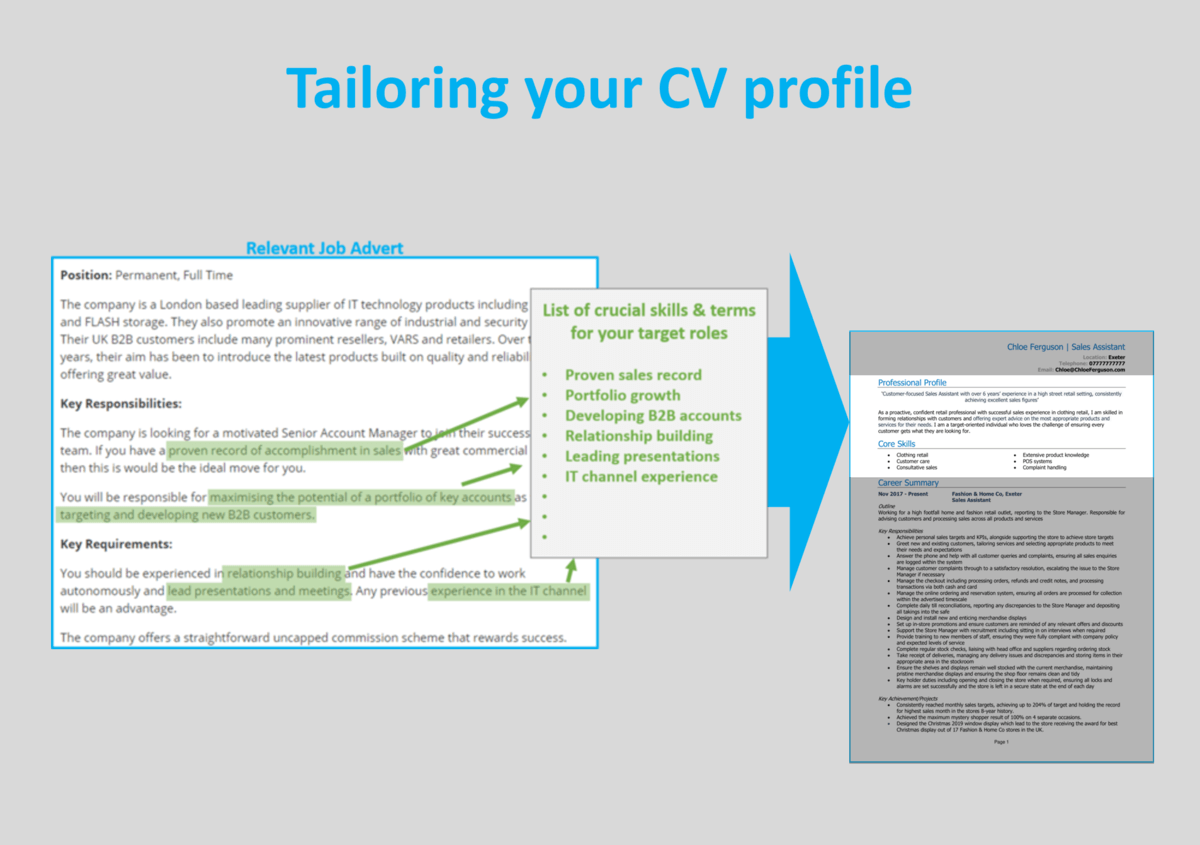
This research will show you exactly what to include in your personal statement in order to impress the recruiters who will be reading it.
Education and qualifications are an important aspect of your personal statement, especially if you are a junior candidate.
You should highlight your highest and most relevant qualifications, whether that is a degree or your GED. You could potentially go into some more detail around modules, papers etc. if they are relevant to the roles you are applying for.
It’s important that you discuss the experience you have gained in your personal statement, to give readers an idea of the work you are comfortable undertaking.
This can of course be direct employed work experience, but it doesn’t have to be.
You can also include:
- High school/college work placements
- Voluntary work
- Personal projects
- Hobbies/interests
As with all aspects of your resume , the content should be tailored to match the requirements of your target roles.
Whilst discussing your experience, you should touch upon skills used, industries worked in, types of companies worked for, and people you have worked with.
Where possible, try to show the impact your actions have made. E.g. A customer service agent helps to make sales for their employer.
Any industry-specific knowledge you have that will be useful to your new potential employers should be made prominent within your personal statement.
For example
- Knowledge of financial regulations will be important for accountancy roles
- Knowledge of IT operating systems will be important for IT roles
- Knowledge of the national curriculum will be important for teachers
You should also include some information about the types of roles you are applying for, and why you are doing so. Try to show your interest and passion for the field you are hoping to enter, because employers want to hire people who have genuine motivation and drive in their work.
This is especially true if you don’t have much work experience, as you need something else to compensate for it.
Resume personal statement mistakes
The things that you omit from your personal statement can be just as important as the things you include.
Try to keep the following out of your personal statement..
Irrelevant info
Any information that doesn’t fall into the requirements of your target roles can be cut out of your personal statement. For example, if you were a professional athlete 6 years ago, that’s great – but it won’t be relevant if you’re applying to advertising internships, so leave it out.
Generic clichés

If you are describing yourself as a “ dynamic team player with high levels of motivation and enthusiasm” you aren’t doing yourself any favours.
These cliché terms are vastly overused and don’t provide readers with any factual details about you – so keep them to a minimum.
Stick to solid facts like education, skills , experience, achievements and knowledge.
If you really want to ensure that your personal statement makes a big impact, you need to write in a persuasive manner.
So, how do you so this?
Well, you need to brag a little – but not too much
It’s about selling yourself and appearing confident, without overstepping the mark and appearing arrogant.
For example, instead of writing.
“Marketing graduate with an interest in entering the digital field”
Be creative and excite the reader by livening the sentence up like this,
“Marketing graduate with highest exam results in class and a passion for embarking on a long and successful career within digital”
The second sentence is a much more interesting, makes the candidate appear more confident, throws in some achievements, and shows off a wider range of writing skills.
Quick tip: A poorly written resume will fail to impress recruiters and employers. Use our quick-and-easy Resume Builder to create a winning resume in minutes with professional templates and pre-written content for every industry.
Your own personal statement will be totally unique to yourself, but by using the above guidelines you will be able to create one which shows recruiters everything they need.
Remember to keep the length between 10-20 lines and only include the most relevant information for your target roles.
You can also check our college graduate resume example , our best resume templates , or our library of example resumes from all industries.
Good luck with the job hunt!
Protect your data
This site uses cookies and related technologies for site operation, and analytics as described in our Privacy Policy . You may choose to consent to our use of these technologies, reject non-essential technologies, or further manage your preferences.
- CV and Cover Letter
- Craft a winning personal...
Craft a winning personal statement for your CV to stand out
8 min read · Updated on April 18, 2024

Let the personal statement on your CV speak volumes about you
You probably have a fairly good idea of how to write a CV . Your employment history , education , and qualifications are relatively easy to pull together as you just need to look at dates, your previous job specs, and what you've achieved over the years.
The personal statement is often the trickiest component of a CV to write. Thankfully, we've got this comprehensive guide to help you write a winning one.
What is a personal statement for a CV?
Your personal statement is a short paragraph that sits at the top of your CV, just below your name and contact details. Diving into three key aspects, this section offers the recruiter or hiring manager a powerful overview of you as a professional:
1. Who you are
2. Your suitability for the role and the value you can add
3. Your career goals
Why include a personal statement on your CV?
It is estimated that recruiters spend an average of less than 8 seconds reviewing a CV before deciding whether the applicant is a good fit.
As the personal statement is the first section they will read, it must be powerful and tailored to the job you're applying for to successfully showcase your suitability. If it's not, you're unlikely to convince the recruiter you're the talent they need for the job.
5 tips on writing your personal statement
Before we look at some personal statement examples, let's take a look at the basics. Here are some expert-backed tips for writing a good personal statement on your CV.
1. Keep it short and on point
Keep your personal statement clean and concise. It's typically around four sentences long, or about 50 to 200 words. If you're overshooting that word count, see which nonessential parts can be omitted.
2. Get the layout right from the start
Make sure that your layout is consistent with the rest of your CV's formatting . That means maintaining the same font size , font type, and text justification. Recruiters will notice these minor details, and so it's smart to get ahead of the game here.
3. Use a heading (if there's space!)
You can add a “personal statement” heading in the same way that you'd title the subsequent sections of your CV. However, if you're tight on space, you can cut the heading as recruiters will know what this paragraph is nonetheless.
4. Choose the right perspective
The first person is acceptable for a statement (“I am an IT professional looking for a job in…”) as is the third person (“An IT professional looking for a job in…”). Choose the point of view that's most comfortable to write in, but, as always, keep it consistent with the rest of your CV.
5. Cut back on unnecessary words
If you're writing in the third person, remove all pronouns. Otherwise, it sounds existentially awkward, rather than objective. For example, “She is a retail professional seeking a management role…” would become “A retail professional seeking a management role…”
How to write a personal statement for a CV
We've looked at the purpose of a personal statement, what it should include, and how it should look on the page. Now let's zoom in on exactly how to write a winning statement.
When writing, keep in mind that the personal statement on your CV is your elevator pitch; it's the equivalent of the “Tell me about yourself” or “Why should I hire you?” question in an interview. Below, we break down what you need to include in your personal statement.
Part 1: Who you are
Your opening statement needs to tell the prospective employer where you stand in your career.
This introduction could include your current role, years of experience, and what you like the most about your career or professional field. It gives the recruiter a hint of the qualities that make you valuable to the vacancy.
Your first sentence may read like so:
As a successful digital marketing professional with five years specialising in e-commerce, I have recently worked with several global brands in the sector to improve their marketing strategy and boost their reach.

Part 2: Your suitability and value
The next part of your statement should line up with the requirements in the job description and prove your relevant and impressive qualifications.
It's always best to address here the essential job specifications to articulate from the beginning that you're the right person for the job. For example, if the role requires management experience or a certain degree and you have these, say so.
Your middle sentences may look like this:
I have experience in optimising quality digital products via my most recent role and am therefore in tune with the latest developments across the online landscape. As a result, I have devised winning branding strategies for e-commerce businesses that are robust, customer-centric and set for aggressive growth.
Part 3: Your career goals
The last part of your personal statement should be short and snappy as it's reaffirming why you are applying for this vacancy.
It might read something like so:
I am currently looking for a senior branding or marketing management role within the e-commerce sector where I can maintain my strong track record and deliver similar results.
Complete CV personal profile examples
In addition to the samples above, here are a couple of complete personal statement examples to give you an idea of what yours should look like.
For a graduate, written in the third person:
A recent graduate with a first-class BSc degree in Mathematics, specialising in analytics and statistics. Holds commercial experience within the finance sector, thanks to an internship with a corporate UK business, and has resultantly developed technical skills in data science and data engineering. Has a proven ability to meet deadlines, prioritise, problem solve, and maintain high standards having balanced a part-time job alongside studies over the last three years. Now looking to secure a place on a graduate programme that will provide exposure to data science and career progression opportunities.
Addressing a recent redundancy, written in the first person:
I am a skilled and successful Product Engineer within the automotive industry, with an HND in mechanical engineering and seven years of experience in the sector. Having worked in a number of labs handling vehicle-based testing and mentoring development technicians, I am confident in managing teams in a hands-on environment and running new development projects from briefing to sign off. Currently looking for a role that complements my skill set and experience. Available immediately.
Writing your personal statement: common mistakes to avoid
There are some common profile errors that you should avoid. Steer clear of these popular pitfalls to keep your personal statement as powerful as possible.
Buzzword overload
Are you an extremely self-motivated, ambitious professional with extensive experience and passion for a certain industry? We thought so.
Buzzwords are great, and you'll find them in abundance in job adverts. But it's best to sprinkle just a few through your personal statement as they don't particularly provide evidence of your skill or ability. It's much stronger to show the employer how you're self-motivated and ambitious with an example.
Using a generic personal statement
You might think that your personal statement can work for every application. For the most part, it will, because, in theory, the jobs you're applying for will be similar and match your skill set.
However, you must tweak and tailor your statement (and your entire CV) so that it targets the skills each vacancy requires. Otherwise, it won't be as impactful.
Including too much waffle
As you begin to plan and write the personal statement for your CV, you'll most likely find that you have a lot more to say than you originally thought. Be careful not to overwrite as you may be left with a statement that's clogged with too many adjectives and is clunky to read.
As a rule of thumb, highlight your best bits in your personal statement and save the details for your cover letter .
FAQs about your personal statement
Now that we've shown you some examples of a personal statement on a CV, there's just one last thing to cover. Here are some frequently asked questions on the topic:
How long should a personal statement be?
When you're writing a personal statement for a CV, your word count should be between 50 and 200 words. Be sure not to waste any space with unnecessary waffle here.
Does a personal statement have other names?
Yes! The personal statement on your CV may also be called a personal profile, a CV summary, or a professional summary.
Does a CV (really) need a personal statement?
Yes, most CVs require a personal statement at the top of the page. Use our guide to help you write a summary that grabs the hiring manager's attention for the right reasons.
Stand out with a winning personal statement
Writing a captivating personal statement on your CV is a quick way to hook potential employers. Make sure that your summary showcases what makes you unique and adds value to your application.
Still unsure about your personal statement? Get in touch with one of our career experts by requesting a free CV critique today!
Recommended reading:
Professional email salutations that work (with examples)
Written communication: definition and examples
How long should a cover letter be and what should it include?
Related Articles:
How to list publications on a CV (with examples)
How to leverage ChatGPT for your job search in 2024
How to choose the best CV paper
See how your CV stacks up.
Career Advice Newsletter
Our experts gather the best career & CV tips weekly. Delivered weekly, always free.
Thanks! Career advice is on its way.
Share this article:
Let's stay in touch.
Subscribe today to get job tips and career advice that will come in handy.
Your information is secure. Please read our privacy policy for more information.
- International edition
- Australia edition
- Europe edition
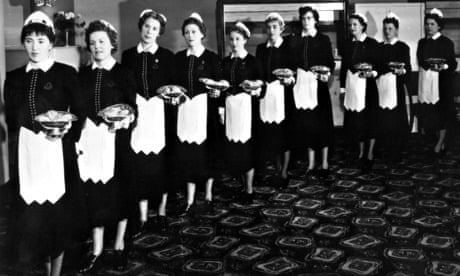
How to write a personal statement for your CV
A personal statement on your CV is a great way to give your job application extra impact. Here are some examples to help you get started.
- Looking for a job? Explore the range of vacancies on Guardian Jobs and find the perfect role for you
A critical aspect of creating an effective CV is writing a personal statement, sometimes called a profile or career summary, that enables the recruiter to quickly identify the strategic value you can add to their organisation. Your CV should be a self-marketing document aimed at persuading the recruiter to interview you – and your personal statement is a critical part of making this happen.
Many candidates struggle with writing the statement but it doesn’t have to be a difficult as you may think. A well written statement can be between 50 and 200 words, although it is important not to ramble. Remember you always have your cover letter for interesting and engaging information.
It’s important to read the job specification carefully and ensure not only that your skills and experience match but you reflect this in your statement. I am often asked whether a statement should be written in the first or third person and, while there are no definitive rules about this, my preference is always to write in the first person because the CV is all about you and your skillset. This doesn’t mean that you have to add “I” at the beginning of each sentence, however. The reader knows it’s about you so avoid this type of repetition and keep them engaged in your value and transferable skills.
For example an opening statement without the opening “I” could read:
As a highly-motivated and results orientated manager within the luxury hotel sector, I have a proven track record of providing exemplary levels of service to a broad range of guests, including VIPs and high-profile individuals.
This example reads naturally and flows for the reader, whereas if an “I” was inserted at the start, while not hugely different, it would read more like a list. As you move forward with additional information it then becomes difficult to break out of the format you have started.
As a general rule, it’s best to break the statement into three sections:
Who you are
As recent graduate from Durham University, with a 2:1 honours degree in media communications, I have undertaken several internships within leading organisations such as Bertelsmann and Times Warner. These placements have enabled me to develop not only specific media industry experience, but also a valuable and transferable skill set in this fast-paced sector.
The above opening allowes the recruiter to quickly identify where you are coming from, that you have had industry experience (something that may be in the selection criteria) and core transferable skills. This in itself could be enough for your opening statement, but it can be expanded upon by adding some additional information.
What you can bring to the table
During placement with Bertelsmann, I worked in the media division contributing to projects – such as the award-winning China Max Documentary – and managed my own research, liaised with various divisions, formulated media reports and participated in group project meetings. Utilising excellent communication skills, I developed and maintained successful working relationships with both internal and external staff.
Your career aim
Looking to secure a position in a media organisation, where I can bring immediate and strategic value and develop current skillset further.
An example of a poorly written personal statement
Tim is a recent graduate from Durham University with a 2:1 honours degree in media communications. I have undertaken several internships within leading organisations. Tim is now looking to secure a position in a media organisation where I can develop my current skill set.
The mismatch of first and third person is not only confusing to the reader, but it almost sounds like a profile about different people. It also lacks specific detail and proof of what value the candidate could bring to the company.
Key points on writing a dynamic and interesting personal statement:
- Get straight to the point: avoid lengthy descriptions and make your testimonies punchy and informative.
- Keep it between 50 to 200 words maximum.
- If you have enough space, use 1.5 line spacing to make you statement easier to read.
- Match person and job specifications with well written copy.
- Read your profile out loud to ensure it reads naturally.
- Don’t mix first and third person sentences.
Other essential resources
Three excellent cover letter examples
CV templates: graduates, career changers and ladder climbers
What questions to ask at the end of your interview
How to write a CV when you lack direct work experience
Elizabeth Bacchus is a consultant and founder of The Successful CV Company .
Looking for a job? Browse Guardian Jobs for your next career step.
- Guardian Careers
- The Careers Blog
- Applications
Comments (…)
Most viewed.
- Work With Us

How To Write A Personal Statement For Your Resume (With Examples).
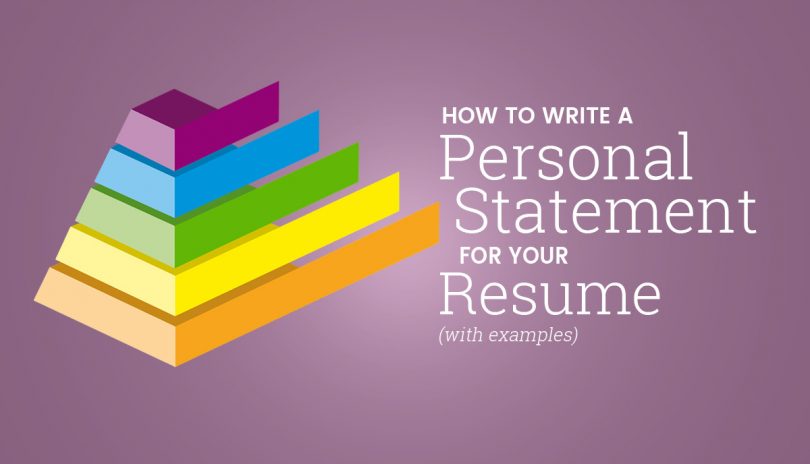
You need to write a personal statement for your resume and are looking for examples.
You could make it easy for yourself and hire a professional resume writer such as myself .
But maybe your budget is limited – or maybe you don’t feel that hiring a professional resume writer is worth it ( Are Professional Resume Writers Worth The Cost? ).
Either way, no problems.
You’ve Come to the Right place.
The best way to write an eyeball-grabbing personal statement for your resume is by knowing what NOT to do.
I’m about to show you some examples of very underwhelming, yet typical personal statements. I will then explain what makes them so average – so that you don’t make the same mistakes when you write your own.
If you follow my advice, you’ll end up with a killer killer personal statement for your resume that will position you as the winning candidate in front of potential employers.
But before I get stuck into it, let me give you a quick heads-up. What I’m about to tell you will help you write a much more persuasive resume.
Brand Yourself.
The personal statement sets the foundation of your personal brand .
The idea of a professional or personal brand isn’t new. The term was first coined by business management consultant Tom Peters back in his 1997 essay The Brand Called You .
In it, Peters claimed that:
“You’re not defined by your job title and you’re not confined by your job description…You’re every bit as much a brand as Nike, Coke, Pepsi, or the Body Shop.”
What Peters described was a ‘value proposition’. You can begin to discover what yours is by asking yourself the following three questions:
- What makes you uniquely attractive to employers ?
- What makes you uniquely different from the next similarly qualified candidate?
- And, most importantly, what organisational problems can you solve that no-one else can ?
Answering these three questions in your personal statement is your number one priority. To keep you on track, remember JFK’s famous inaugural quote:
“Ask not what your employer can do for you; ask what you can do for your employer.”
Example of a bad personal statement #1:
Let’s perform an autopsy of a personal statement taken from a typical run-of-the-mill resume that I found online.
Can you spot any problems with it – before I shine a light on them?
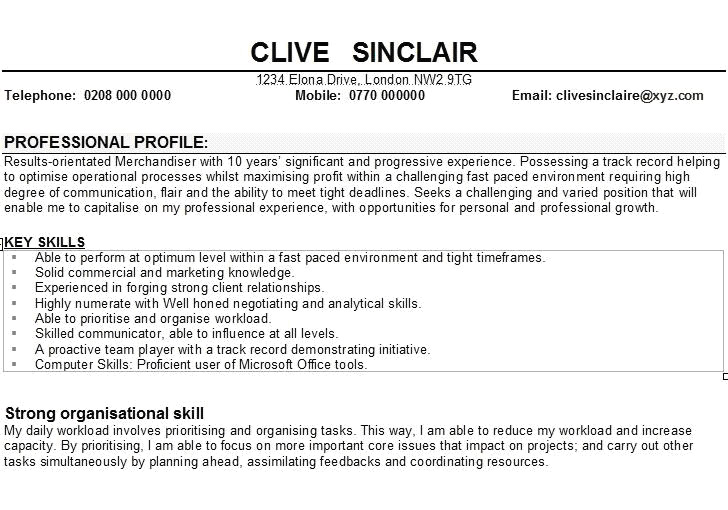
This example makes the wrong first impression with “Results-orientated…”.
Generic phrasing is a real snooze for recruiters . They look through dozens of resumes per day and most kick off with some variation of this line.
The second sentence in the above example starts well with an attempt to identify a skill that solves a problem and delivers an outcome:
“Possessing a track record helping to optimise operational processes whilst maximising profit…”
But then ends in a way that doesn’t make much sense:
“…within a challenging fast paced environment requiring high degree of communication, flair and the ability to meet tight deadlines.”
A personal statement for a resume needs to be snappy. A sentence should take up no more than 2 lines, have no more than 2 clauses or related to more than one core competency.
Snappy sentences bring impact. In the above for example, the writer could have made his/her point with much more impact by saying:
“I possess a track record of optimising operational processes whilst maximizing profit.”
What’s an objective?
It’s the once-popular resume item which now firmly belongs in the dustbin of history. You see it in the example above as part of this sentence:
“Seeks a challenging and varied position…”
Truth is, your objective is implied in the act of submitting your job application. By reiterating it on your resume you waste valuable real estate – and squander an opportunity to sell yourself.
Recruiters want to know how you can solve their problems, not how they can solve yours.
Example of a bad personal statement #2:
Let’s dissect another example of a personal statement. This one will teach us a few different lessons:
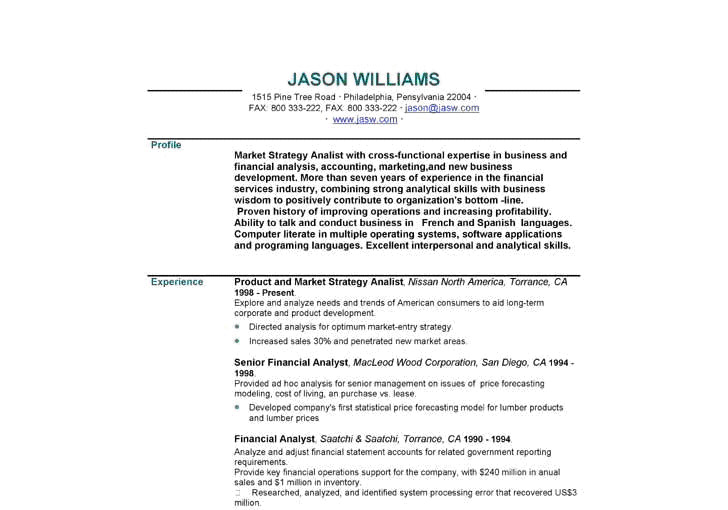
“Market strategy analist…”
This example shows us the typical shotgun approach – cramming all areas of experience in to cover the bases:
“…cross functional expertise in business and financial analysis, accounting, marketing and new business development…”
Serial entrepreneur Gary Vaynerchuk wisely told us: “ No matter what you do, your job is to tell your story”.
Great stories have structure, cohesion and flow – and so should the personal statement on your resume.
It needs to paint a clear and coherent picture of your expertise and value proposition, so avoid standalone sentences like the one in the above example:
“Proven history of improving operations and increasing profitability. Ability to talk and conduct business in French and Spanish languages…Excellent interpersonal and analytical skills.”
As personal statement examples go, the one isn’t ‘bad’ – but it is boring.
Whilst we get a good overview of skills and experience (albeit in a somewhat clumsy manner), it fails to tell us anything ‘personal’.
Research shows that more than ever, employers are recruiting for culture fit .
A personal statement for a resume should be an introduction to your brand – in your voice.
Absence of all pronouns (as we see in the example above), creates an impersonal, distant resume. Give your recruiters a voice that they can connect with by writing your personal statement in the first voice.
For example:
“I am a professional, committed and ambitious Chartered Internal Auditor with more than 20 years’ experience…”
The difference is subtle, but noticeable, isn’t it?
My Final Piece of Advice.
As you continue your research on how to write a personal statement for a resume, it’s important that you know a lot of the ‘advice’ out there is poor. Consistent, but poor.
Most of the guidance on writing a personal statement for a resume is dated. So-called ‘gurus’ will tell you to describe your best assets, focus on your strengths and highlight your accomplishments.
This approach might have worked 10 years ago.
To win in today’s job market, you need to focus on how your best assets, strengths and accomplishments solve organizational problems.
This is the core of your personal brand.
To find out more about my approach, you can read my interview with the Huffington Post – Building A Personal Branding Company .
About the author
Career Geek Experts
Articles written by our in-house team including CEO's, hiring managers, administrators, and everything in between!

CV Template Master
Free Word CV templates, résumé templates and careers advice
Home » Careers advice » Writing your CV personal statement
Writing your CV personal statement
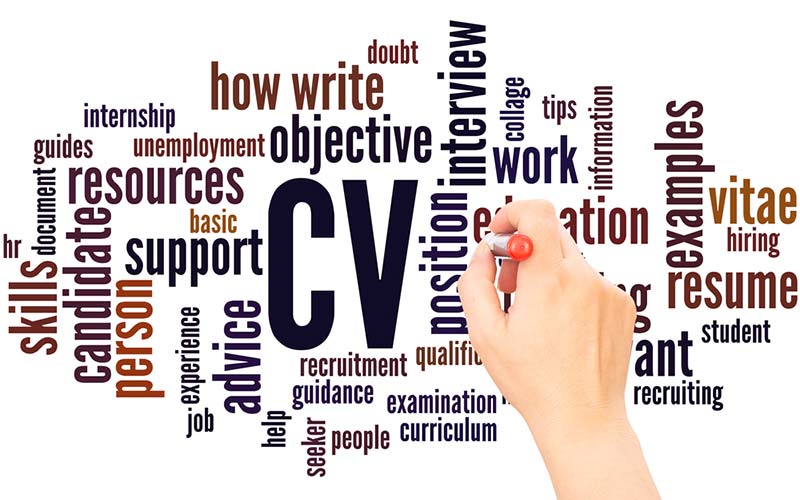
There are many important aspects to a CV but your CV personal statement is perhaps the most important.
With so many applications to read through, the hiring manager wants to see a clear contender. They’re looking for someone who has the right skills, industry knowledge and attitude to succeed with their company.
Typically the hiring manager will spend only a few seconds reading your CV. Your CV personal statement is so important because it can demonstrate all of these things to the hiring manager in just a few short sentences.
What is a CV personal statement?
This section goes at the top of your CV, underneath your details. It is sometimes referred to by other names such as:
- Career objective
- Career goal
- Personal profile
- Personal statement
- Introduction
A personal statement for your CV has three key ingredients:
1. Who you are
In the first sentence, you’ll introduce yourself by stating who you are in a work context. If relevant (or required in the job advert) you might also state the amount of experience you have.
2. What makes you suitable for the role
The second sentence will focus on the work experience and skills you have that will benefit the company. You don’t have to go into too much detail here because your employment history and core skills section will adequately cover this. The key to completing this part is to ask: what are the most important requests in the job advert? Try to cover this in your second sentence to instantly show the employer you are the right person for the job.
3. What you are looking for
Your third sentence sets out your present career goals by stating what you want to achieve. Try to see this from the hiring manager’s perspective. They are recruiting for a particular position and don’t necessarily need to know your lifelong aspirations at this stage.
Here is an example of a personal statement for a CV:
Job title: Parts department service team member
[WHO YOU ARE] I am a diligent, hard-working customer service provider with more than 8 years experience in the motor trade and a passion for exceeding customers’ expectations.
[WHAT MAKES YOU SUITABLE FOR THE ROLE] I am competent in all aspects of the customer journey, from b ooking MOTs, ordering parts and liaising with the workshop to using databases, managing diaries and communicating effectively across the organisation.
[WHAT YOU ARE LOOKING FOR] I am looking for an opportunity within customer service with the opportunity to advance to a team leader position.
Although your personal statement is just a small part of your CV, it’s important to get off to a great start because it will be one of the first things the employer reads. Making a great first impression will leave the hiring manager wanting to know more, and consequently could land you an interview.
Here are some further examples of effective personal statements that follow the above formula:
Retail sales personal statement:
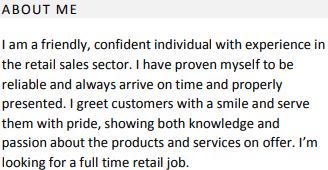
Accountancy personal statement:

Where to put your personal statement
Your personal statement CV section should serve as an introduction to your CV. It should go at the top just after your name and contact details. A well written personal statement will instantly grab the reader’s attention and leave them wanting to know more.
Personal statement length
A successful personal statement will be short and to the point – typically just one paragraph consisting of no more than 3 or 4 sentences. This is because lengthy blocks of text will just lose the hiring manager’s interest and land your CV squarely in the rejection pile. Above all, it should be engaging and focused upon the role you are applying for.
Aligning your personal statement with the job advert
Your personal statement can only be written after you’ve analysed the job advert. This is because only then can you fully understand what the employer wants. With only one paragraph, you have to show how you are the right person for the job. You should never write a generic personal statement because this suggests you are not really interested in their company or the position on offer.
Keeping your statement honest and realistic
Stating that you want to be the CEO in three years’ time may come across as a little arrogant, presumptuous and possibly unrealistic. Your personal statement needs to be realistic and focused upon the job on offer. Even if you would like to become a manager as soon as possible, you don’t need to show all your cards when an employer is looking to only fill this position.
You also need to be honest throughout your personal statement (and indeed, your CV) because even the slightest embellishment could hinder your chances of an interview. Likewise, avoid cliché statements as these can be spotted from a mile away. Stick to the facts whilst remaining positive, upbeat, engaging and relevant.
You may find this video from Deniz Sasal at LIG Academy helpful:
Top tips for success:
1. get to the point.
You’ve got about 3 or 4 sentences to use. Don’t fill them with waffle – you’ll dampen your impact. Pick out the key reasons why the employer should hire you, in the context of the job advert.
2. Use buzzwords sparingly
This is not the place to talk about being ‘highly motivated’, ‘a great communicator’ or ‘amazing team player’. You need to stick to hard facts here, such as length of experience or results. Sure, you might have covered these topics later on. However, the employer won’t read further if you stuff the profile with general, fluffy statements that have no value.
3. Don’t boast
This IS a good place to include key achievements from your track record. However, inflating those achievements will make you look insincere, arrogant or downright dishonest. If you detail achievements, make sure you’re not exaggerating to impress. The employer may be suspicious of your claims and you could lose out on that all-important interview
We have a huge collection of free CV templates with space to write your objective – check them out here .
We are a UK-based business that provides a range of services to job seekers including free Word CV templates, résumé templates and CV examples. Our CV template library includes hundreds of professionally designed Word CV templates and examples, all free for personal use.
Leave a comment Cancel reply
Save my name, email, and website in this browser for the next time I comment.
Privacy Overview
Functional cookies help to perform certain functionalities like sharing the content of the website on social media platforms, collect feedbacks, and other third-party features.
Performance cookies are used to understand and analyze the key performance indexes of the website which helps in delivering a better user experience for the visitors.
Analytical cookies are used to understand how visitors interact with the website. These cookies help provide information on metrics the number of visitors, bounce rate, traffic source, etc.
Advertisement cookies are used to provide visitors with relevant ads and marketing campaigns. These cookies track visitors across websites and collect information to provide customized ads.
Other uncategorized cookies are those that are being analyzed and have not been classified into a category as yet.

- Skip to primary navigation
- Skip to main content
- Skip to primary sidebar
- Skip to secondary sidebar
- Skip to footer
career-advice.jobs.ac.uk
How to create a CV: Personal Statement
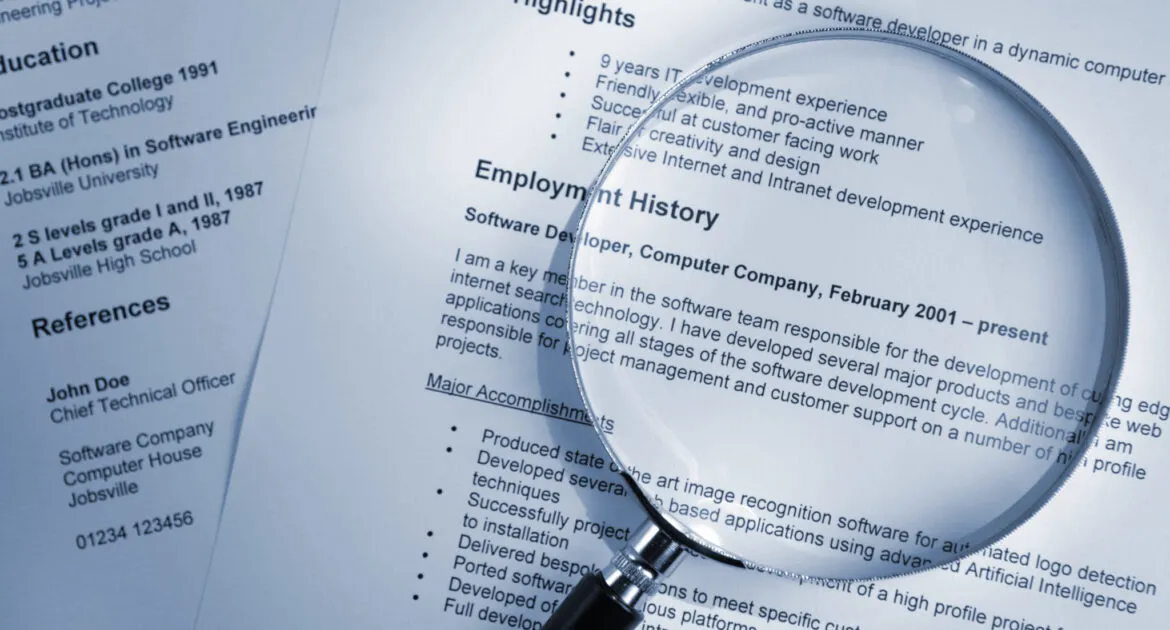
What is a personal statement?
A personal statement is a few sentences that appear at the top of your CV. It is sometimes referred to as a ‘career summary’ or a ‘personal mission statement’.
What is it for?
It explains where your career experience has taken you to this point and what your ambition is for your next job. The purpose is to show why you would be ideal for the job, so it is important that you tailor your personal statement to the job you are applying for. Do not use a generic personal statement for every job application.
Do I always need one?
Personal statements are mostly used for jobs in the private sector. Academic CVs rarely include a personal statement.
What do I include on a personal statement?
Start off with a sentence about yourself: include something on your education and your career goals.
A motivated, adaptable and responsible graduate seeking an entry-level position in public relations which will utilise the organisational and communication skills developed through my involvement with promotional work during vacations.
Explain some of the important skills you have picked up in your career up to this point. Try to give examples of where you picked up these skills. In the example below, the author mentions that he/she developed ‘during my degree’.
Make sure that the skills that you mention are the ones that the employer is looking for. You will find out about what they are looking for by studying the job advert and the person specification.
During my degree, I successfully combined my studies with work and other commitments showing myself to be self-motivated, organised and capable of working under pressure. I have a clear, logical mind with a practical approach to problem-solving and a drive to see things through to completion. I enjoy working on my own initiative or in a team. In short, I am reliable, trustworthy, hardworking and eager to learn and have a genuine interest in PR.
Tips for achieving success with your personal statement
– Keep it short: write less than 200 words.
– Have a consistent ‘voice’. Decide whether to write about yourself in the first or third person and stick to it.
– There are companies who offer to write a personal statement for you (usually at a high cost!) It will sound more personal and will be more relevant if you write it yourself and tailor it to every job.
– Avoid overused clichés such as ‘good team player’. Try to find another way to say the same thing.
A bad personal statement:
Avoid vague statements such as these: “An employer would find me reliable and responsible as well as being extremely flexible and co-operative. I am eager and willing to expand my skills and try out new challenges that may come my way. I am a bubbly and bright person who works well in a team and solely. I also believe I have enough experience and life skills to excel at any challenge thrown my way” taken from http://cv4.biz/cv-personal-statement/
Make sure you illustrate where you acquired those skills and how they relate to the market and industry you’re applying to work in.
How to create a CV: Part Two: Education and Work Experience
How to create a CV: Part Three: Responsibilities and Achievements
How to Create a CV part 4: Additional Information and References
What did you think of our article? - please rate
Share this article
Reader Interactions
You may also like:, leave a reply cancel reply.
Your email address will not be published. Required fields are marked *
Save my name, email, and website in this browser for the next time I comment.
Please enter an answer in digits: 10 − 7 =
This site uses Akismet to reduce spam. Learn how your comment data is processed .

Personal Statement
Ai generator.
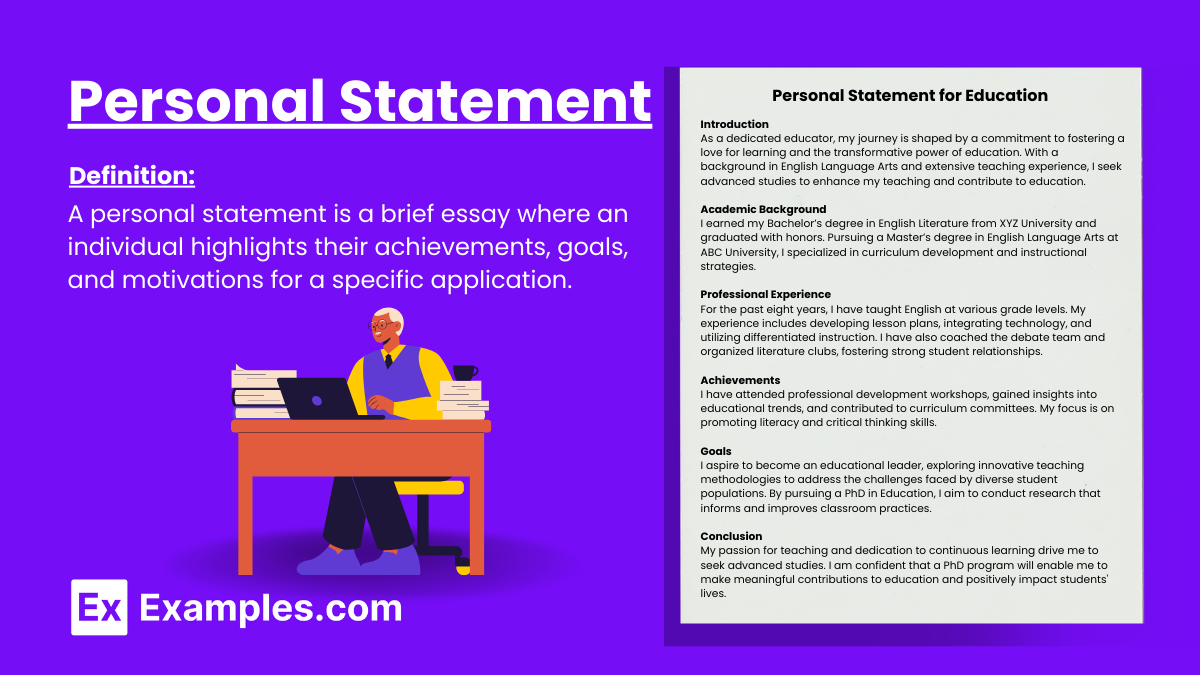
A personal statement is a vital component of college and job application . It showcases an individual’s unique experiences, skills , and aspirations, providing a narrative that highlights their strengths and goals. Crafting a compelling personal statement allows applicants to express their personality and motivations, helping them stand out in a competitive field. It’s an opportunity to reflect on past achievements and outline future ambitions, making a memorable impression on selection committees.
What Is a Personal Statement?
A personal statement is a crucial part of college and job applications, allowing individuals to highlight their unique experiences, skills, and aspirations. It serves as a narrative that showcases strengths and goals, helping applicants stand out. By reflecting on past achievements and outlining future ambitions, a well-crafted personal statement makes a lasting impression on selection committees.
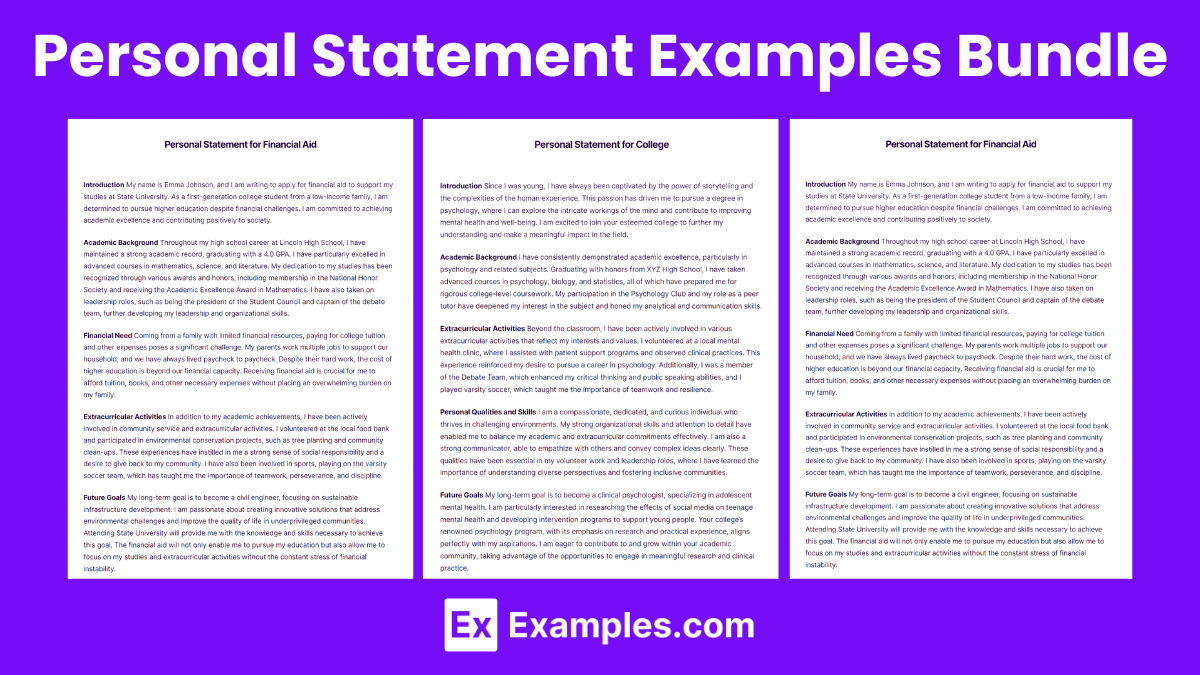
Download Personal Statement Bundle
Personal statement format
A personal statement is a crucial component of applications for college, graduate school, scholarships, or jobs. It is your opportunity to highlight your achievements, experiences, and goals. Here is a format for writing an effective personal statement:
- Begin with a strong opening sentence that grabs the reader’s attention.
- Introduce yourself and state the purpose of your personal statement.
- Mention what you are applying for (e.g., a specific program, scholarship, job).
- Discuss your academic achievements and experiences.
- Mention relevant courses, projects, or research that have prepared you for the program or job.
- Highlight any honors or awards you have received.
- Detail your work experience, internships, or volunteer work.
- Focus on experiences that are relevant to the program or position.
- Emphasize any skills or knowledge you have gained.
- Include any extracurricular activities, hobbies, or interests that demonstrate your well-rounded character.
- Mention leadership roles, community service, or other achievements.
- Show how these experiences have shaped you and your aspirations.
- Clearly state your short-term and long-term goals.
- Explain how the program or job aligns with your career aspirations.
- Describe what you hope to achieve and how you plan to contribute to the field.
- Summarize the key points you have made.
- Reiterate your enthusiasm and readiness for the program or position.
- Thank the reader for considering your application .
Example Personal Statement
Personal Statement for University Introduction : I am excited to apply for the Master’s program in Environmental Science at XYZ University. With a strong academic background in biology and a passion for environmental conservation, I am eager to contribute to cutting-edge research in sustainability and climate change mitigation. Academic Background : I graduated with honors from ABC University with a Bachelor’s degree in Biology. During my undergraduate studies, I completed a research project on the impact of urbanization on local wildlife, which sparked my interest in environmental science. I have taken courses in ecology, environmental policy, and data analysis, providing me with a solid foundation for advanced study. Professional Experience : Over the past two years, I have interned at the Green Earth Organization, where I assisted in conducting field surveys and analyzing data on endangered species. This experience has honed my skills in data collection, statistical analysis, and report writing. Additionally, I volunteered with Clean Water Initiative, where I led a team to organize community clean-up events and educate the public on water conservation. Personal Achievements and Extracurricular Activities : Outside of academics and professional work, I am an avid hiker and nature photographer. I have also been a member of the university’s environmental club, where I served as president and organized several successful campus-wide sustainability events. These activities have strengthened my leadership and teamwork skills. Goals and Aspirations : My short-term goal is to gain in-depth knowledge and research experience in environmental science through the Master’s program at XYZ University. In the long term, I aspire to work as an environmental consultant, helping businesses and communities implement sustainable practices. I am particularly interested in developing innovative solutions to reduce carbon footprints and protect natural habitats. Conclusion : In conclusion, I am confident that my academic background, professional experience, and passion for environmental conservation make me a strong candidate for the Master’s program in Environmental Science at XYZ University. I am eager to contribute to your esteemed program and am grateful for your consideration. Thank you for taking the time to review my application.
Personal Statement Examples
Personal statement for resume.
- Personal Statement for Job
Personal Statement for University
Personal statement for college, personal statement for financial aid.
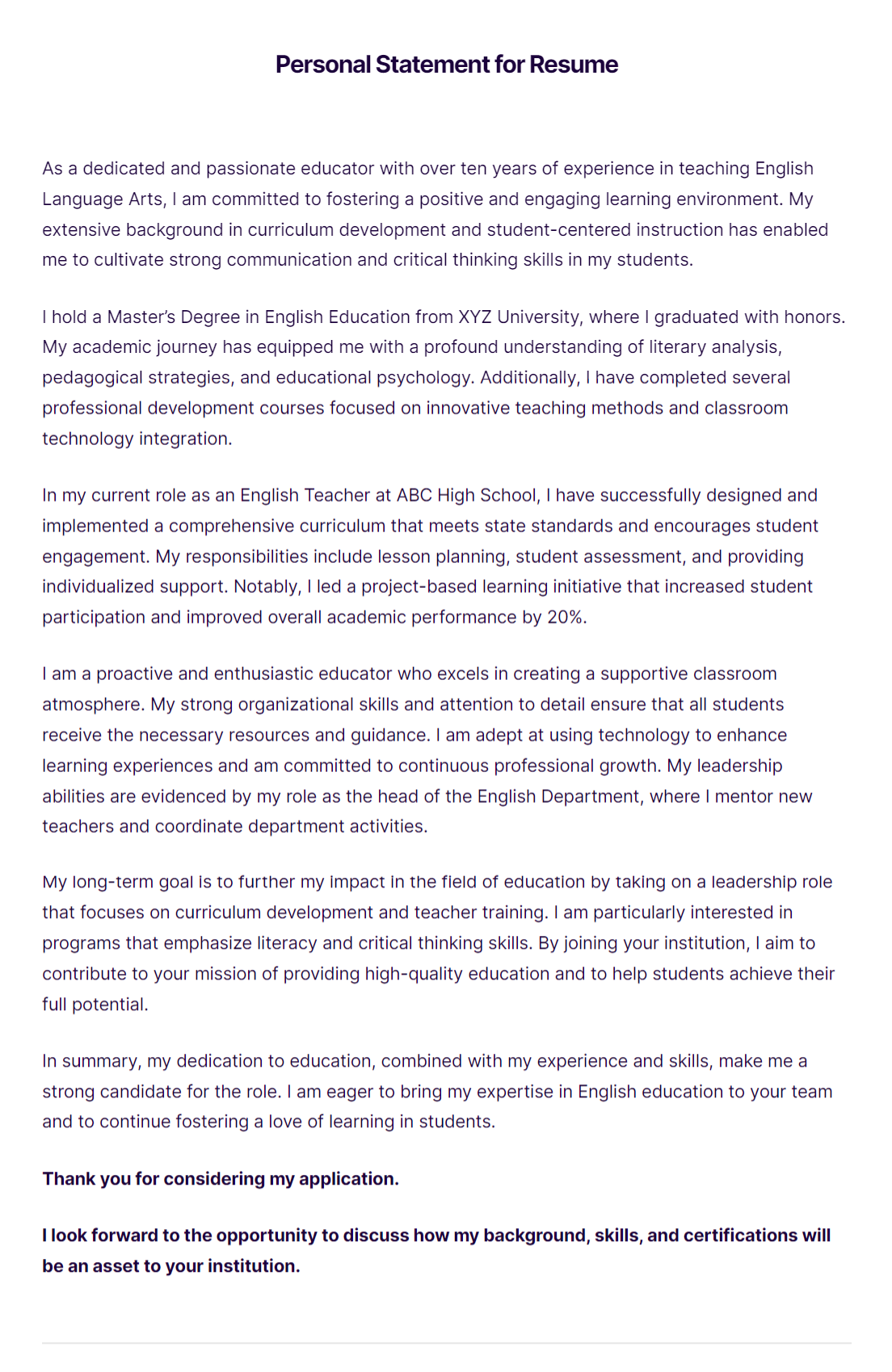
Personal Statement for Jobs
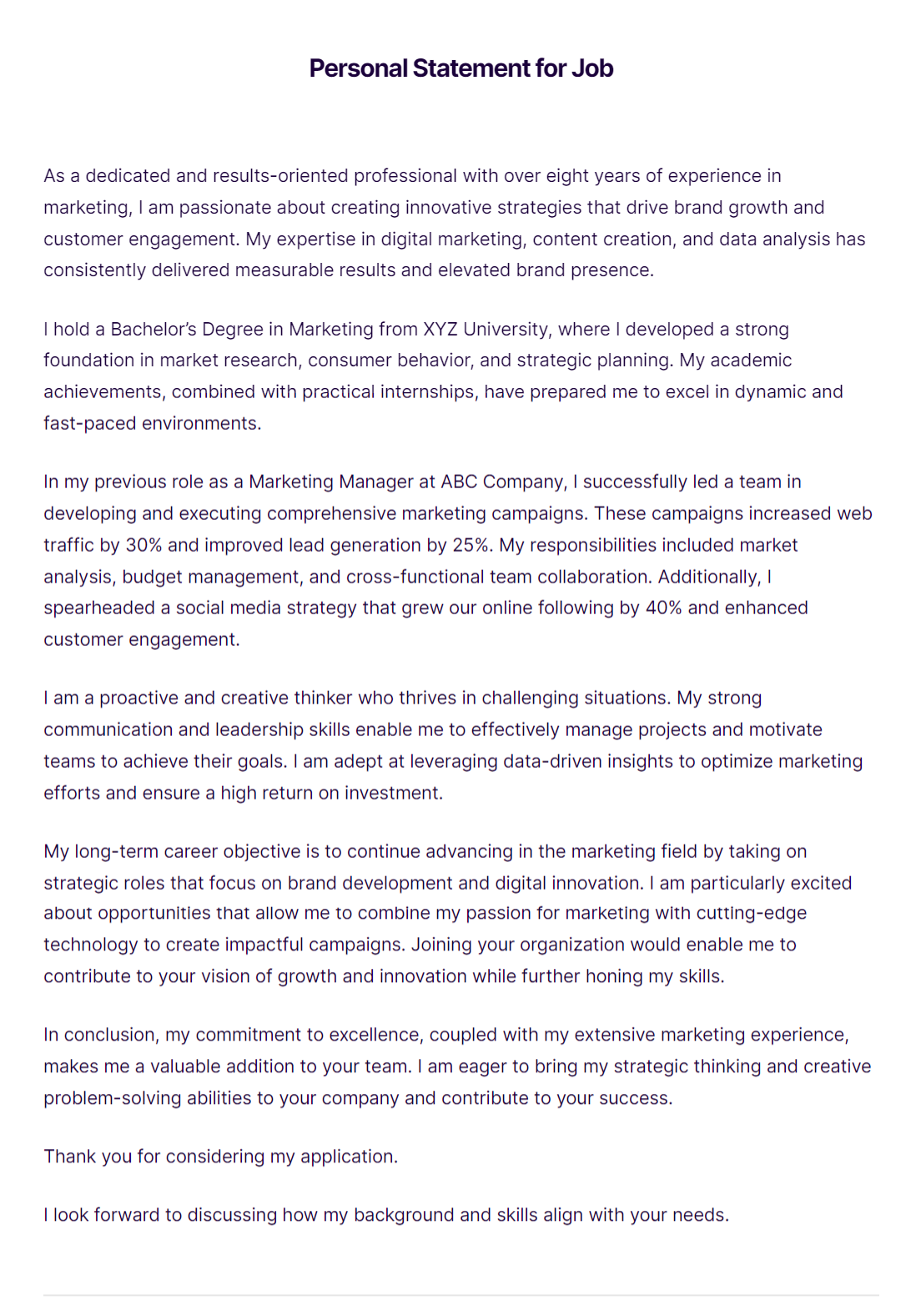
More Examples for Personal Statement
- Personal Statement Example for Medical School
- Personal Statement Example for Graduate School
- Personal Statement Example for Internship
- Personal Statement Example for Law School
- Personal Statement Example for CV
- personal statement Example for Research Internship
More Personal Statement Samples & Templates
1. personal statement affidavit template.
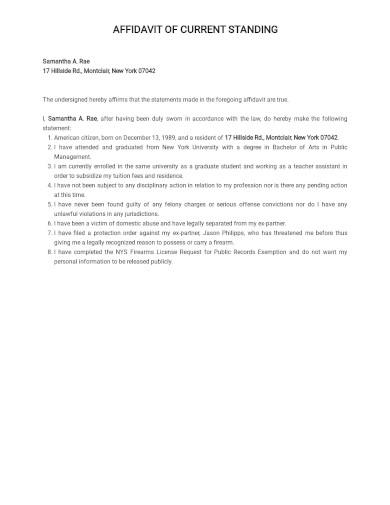
2. Freelance Personal Statement Template
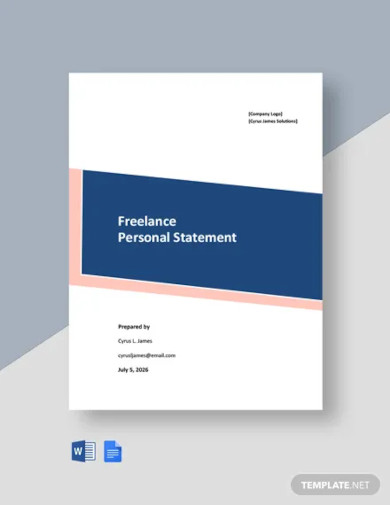
3. School Personal Statement Template
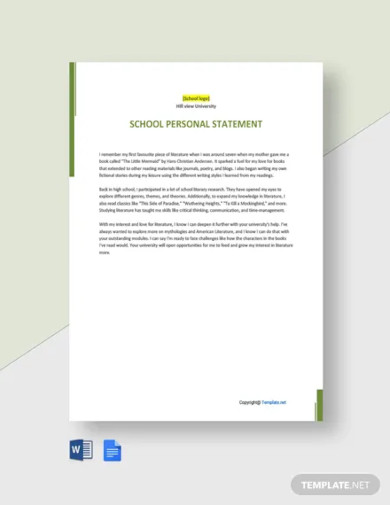
4. University Personal Statement Template
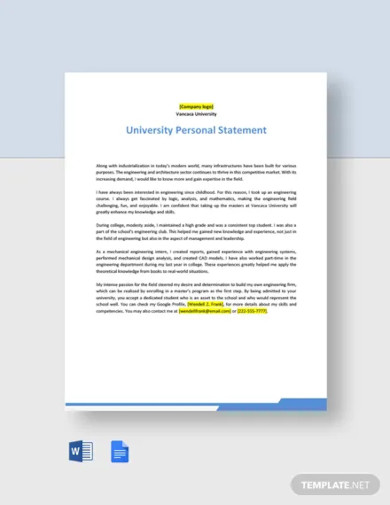
5. Medical School Personal Statement Template
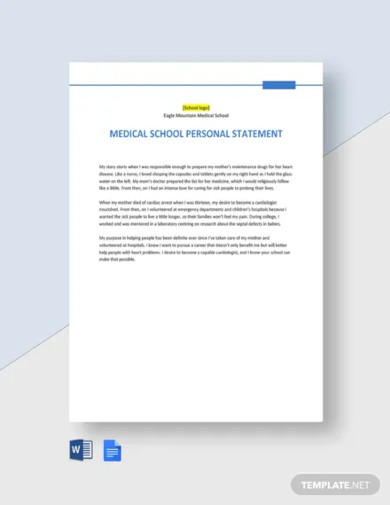
6. Law School Personal Statement Example
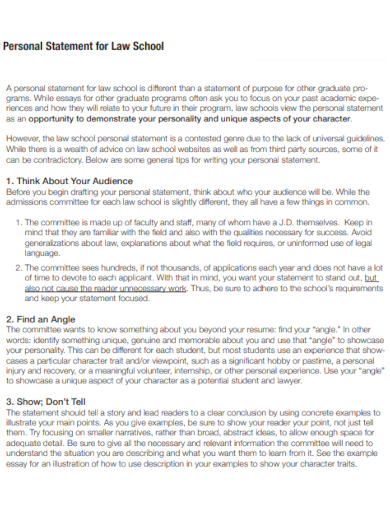
7. Engineering Master Personal Statement
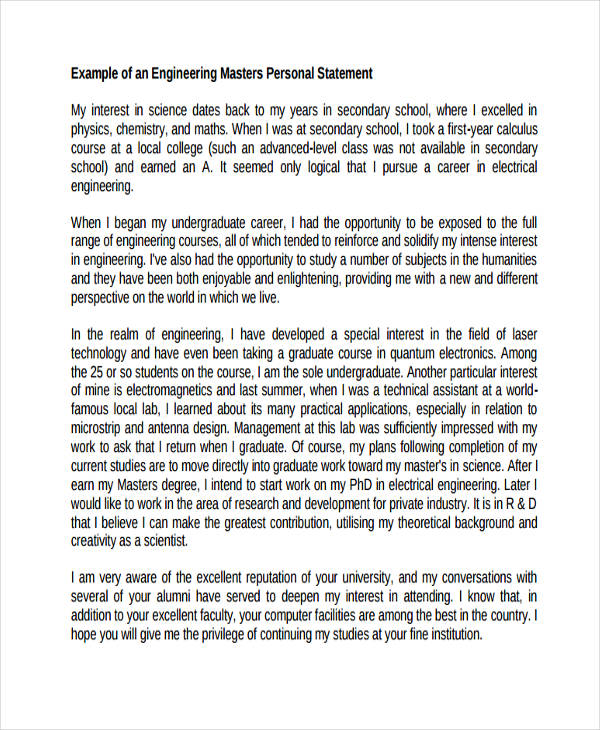
8. Civil Engineering Personal Statement
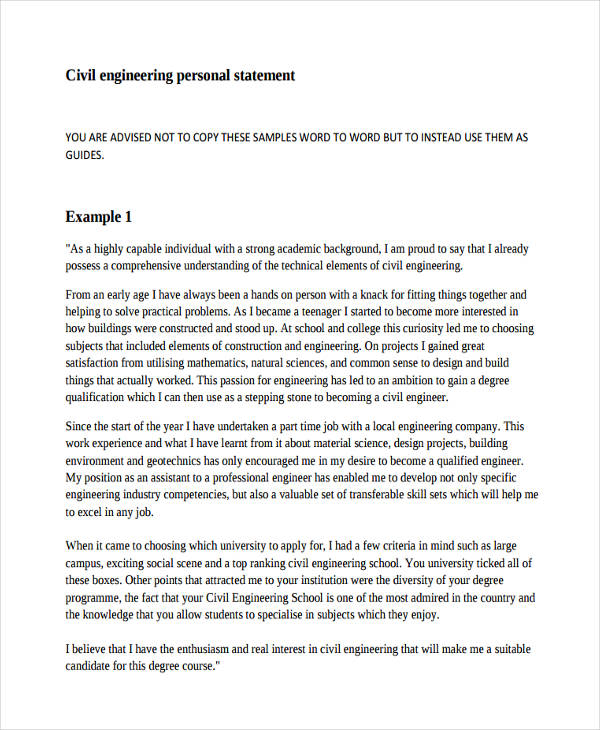
9. Mechanical Engineering Personal Statement
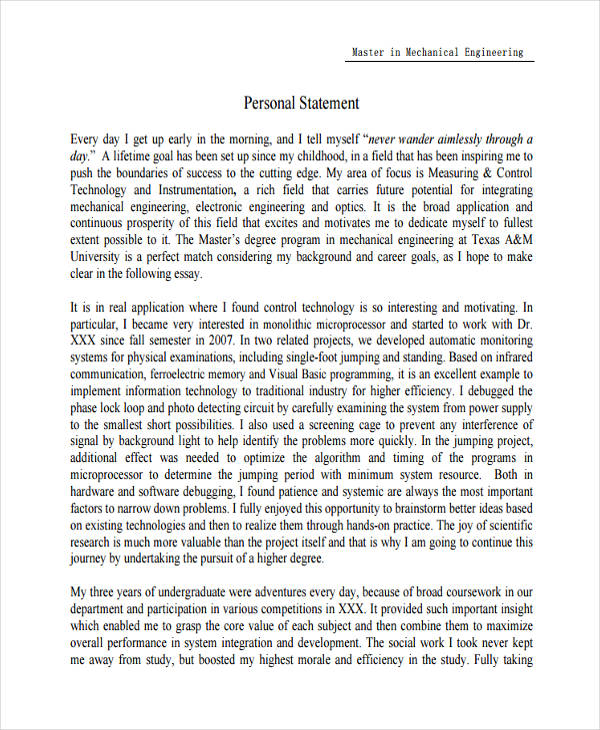
10. Law School Personal Statement
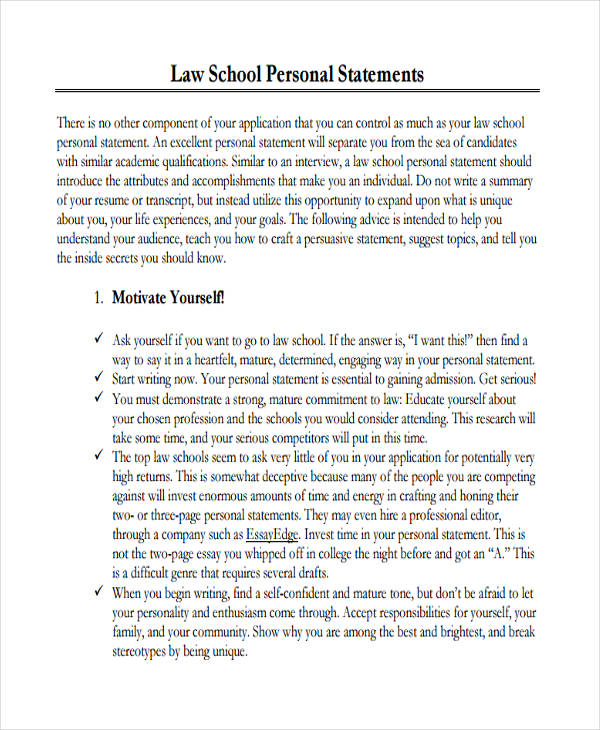
Tips for an Effective Personal Statement
When writing a personal statement, always bear in mind that you write to impress. So we have outlined for you some tips for an effective personal statement.
- Understand Your Goal. Bear in mind what your goal is in writing a personal statement . Remember that you are not the only one who is trying to grab that position or admission, so make it a point to put your best foot forward. This is what you do when you have a goal. It keeps your steps solid and for sure you won’t lose your track.
- Create an Outline. Like a college essay, your personal income statement should have a layout. Use the funneling technique on this one. Start from the most general points and narrow it down to the specific ones. It also helps you organize your thoughts better so your words will not jumble.
- Be Genuine. This is not the hardest thing to do in the world. All you need to do is tell honestly what your skills and accomplishments are. A personal statement is an overview about your personality. Even if it is a written letter, an employer or a supervisor will know if you are telling the truth or not.
- Be Specific. Some schools or business statement establishments would send a list of questions that they need you to answer and include on your personal statement. Answer those questions concretely and with substance. Do not veer away from your main point. Focus on your answer and be straightforward.
- Maintain a Positive Tone. A personal statement is not the place for you to vent out your frustrations in life nor an opportunity to show your weaknesses and appeal for emotions. Make your words sound positive. Provide energy and liveliness when sharing about a certain lesson you learned or an obstacle in your life and how you were able to overcome it.
- Check and Revise. Sometimes when we are writing, we often misspell things or use inappropriate words especially when we are in our deep thoughts. So before you put your letter in an envelope and put it in your mailbox, be sure to proofread your work. Check your spelling, choice of words and arrangement of thoughts.
How Important Is a Personal Statement?
University admissions hold interviews based on the applications they receive. How you write your personal vision statement will be a determining factor for you to land in an interview and consequently get into college. So if you are planning to write a personal letter of poor quality, you better think twice. Here are the reasons why you need to write a compelling personal letter.
1. It gives you a better shot.
Whether you are aiming for a university admission or landing a job at a prominent income statement for company , an effective personal letter gives you a better shot compared to others. Remember that you are not the only participant in the race. In order for you to win, you need to give it with an undivided attention.
2. It gets your name on the list.
Yes, it does. The truth is your personal letter is your only key to have your name on the master list. Some universities are a little picky when it comes to admitting new applicants. They do filtering to ensure that they choose the right students for the right program. Not only that. They are very selective because the applicant they choose will soon become a fruit of their own tree and they certainly don’t want it to be a bad one.
3. It boosts your confidence.
A personal statement is always given a head of time during an application examples or admission process. This gives the school or a company an overview of who to select from the many applicants. Writing a bold and convincing personal letter could get you ahead of others. You get picked from the basket of people longing for that post. Then in the process you get called for an interview.
You know that your personal statement caught the attention of the school board or the employer and so you are confident that you are just a few steps away from landing that position you always hoped for.
A personal statement need not be a novel-long narrative of yourself. Just as long as the important words and details are there, that’s fine. However, never settle for less. Always aim for the best. Have you ever seen an advertising brochure?
It usually comes as a single sheet example in pdf , a cardboard or a photo paper maybe, folded into half or a quarter, but contains all the necessary information you want to know about a certain product. That is how your personal statement should be, brief, concise, and effective.
What should be included in a Personal Statement
A personal statement is a critical component of many applications, providing an opportunity to showcase your qualifications, experiences, and motivations. Here is a comprehensive guide on what should be included in a personal statement:
1. Introduction
- Compelling Opening : Start with an engaging story, quote, or anecdote to capture the reader’s attention.
- Brief Overview : Introduce yourself and state your purpose for writing the personal statement. Mention the program or position you are applying for.
2. Academic Background
- Educational Qualifications : Detail your academic achievements, including your degree(s), GPA, and any honors or awards.
- Relevant Coursework : Highlight specific courses that are pertinent to the program or role.
- Research Projects or Theses : Discuss any significant research projects, theses, or academic papers, emphasizing their relevance to your field.
3. Professional Experience
- Internships and Jobs : Describe your professional experiences, focusing on internships, jobs, or volunteer work that relate to your application.
- Responsibilities and Achievements : Outline your roles, responsibilities, and key accomplishments in these positions.
- Skills Gained : Highlight the skills and knowledge you acquired, and how they prepared you for the role or program.
4. Personal Qualities and Skills
- Key Attributes : Mention personal qualities that make you a strong candidate, such as dedication, motivation, and resilience.
- Technical and Soft Skills : List relevant technical skills (e.g., programming languages, lab techniques) and soft skills (e.g., leadership, communication).
5. Motivations
- Passion for the Field : Explain why you are passionate about the field or profession. Share any personal experiences or events that sparked your interest.
- Career Aspirations : Discuss your long-term career goals and how the program or role fits into your career plan.
6. Future Goals
- Short-term Objectives : Describe what you hope to achieve in the immediate future, such as completing a degree or gaining specific experience.
- Long-term Vision : Outline your long-term professional aspirations and how the program or role will help you achieve them.
7. Conclusion
- Recap Main Points : Summarize the key points of your statement, reinforcing your enthusiasm and readiness for the opportunity.
- Thank You : Express gratitude for considering your application and indicate your eagerness to discuss your application further.
How to Write a Personal Statement.
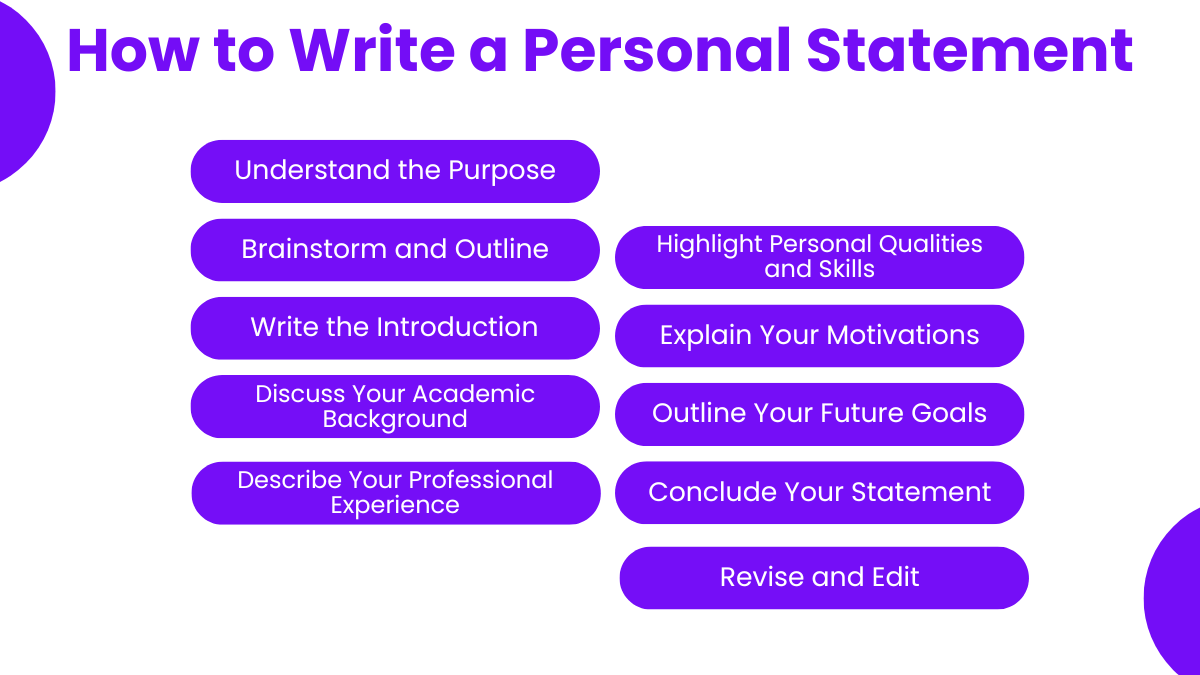
Writing a personal statement can be a challenging task, but it’s an essential part of many applications. Here’s a step-by-step guide to help you craft a compelling and effective personal statement:
Step 1: Understand the Purpose
- Purpose : A personal statement is a narrative that highlights your background, achievements, motivations, and goals. It aims to show why you are a suitable candidate for the program or position you are applying for.
- Audience : Consider who will be reading your statement and what they are looking for in a candidate. Tailor your content to meet their expectations.
Step 2: Brainstorm and Outline
- Self-Reflection : Think about your experiences, achievements, and goals. Identify key themes and stories that showcase your strengths and motivations.
- Outline : Create an outline to organize your thoughts. A typical personal statement includes an introduction, academic background, professional experience, personal qualities, motivations, future goals, and a conclusion.
Step 3: Write the Introduction
- Hook : Start with a compelling opening that grabs the reader’s attention. This could be a personal anecdote, a quote, or a unique experience related to your field.
- Overview : Briefly introduce yourself and state the purpose of your statement. Mention the program or position you are applying for.
Step 4: Discuss Your Academic Background
- Education : Detail your academic achievements, including your degree(s), GPA, and any honors or awards.
- Research Projects : Mention any significant research projects, theses, or academic papers, emphasizing their relevance to your field.
Step 5: Describe Your Professional Experience
Step 6: highlight personal qualities and skills, step 7: explain your motivations, step 8: outline your future goals, step 9: conclude your statement, step 10: revise and edit.
- Proofread : Carefully proofread your statement for grammar, spelling, and punctuation errors.
- Feedback : Seek feedback from mentors, professors, or colleagues to improve the clarity and impact of your statement.
- Polish : Make necessary revisions to ensure your statement is concise, coherent, and compelling.
What is a personal statement?
A personal statement is a written description of your achievements, skills, interests, and goals, typically used for university or job applications.
How long should a personal statement be?
Generally, a personal statement should be 500-800 words, but always check the specific guidelines of the application.
What should be included in a personal statement?
Include your introduction, academic background, professional experience, personal qualities, motivations, future goals, and conclusion.
How should I start my personal statement?
Start with a compelling hook, such as an anecdote, quote, or personal experience, to grab the reader’s attention.
How personal should my personal statement be?
Be personal enough to reflect your unique experiences and motivations but maintain a professional tone throughout.
Can I use the same personal statement for different applications?
Tailor each personal statement to the specific program or job to address their unique requirements and expectations.
Should I mention weaknesses in my personal statement?
If relevant, briefly mention weaknesses, but focus on how you have addressed and overcome them.
How do I make my personal statement stand out?
Highlight unique experiences, demonstrate passion for the field, and provide specific examples of your achievements and skills.
Is it okay to use quotes in a personal statement?
Yes, but use them sparingly and ensure they are relevant to your narrative and add value to your statement.
How do I conclude my personal statement?
Summarize your key points, reiterate your enthusiasm for the opportunity, and thank the reader for considering your application.
Text prompt
- Instructive
- Professional
10 Examples of Public speaking
20 Examples of Gas lighting

IMAGES
VIDEO
COMMENTS
Therefore, it should be compelling, attention-grabbing and tailored to the particular position. Here are three steps to take to create a compelling and effective personal statement: 1. State who you are. Start with a statement detailing where you are in your career. This should communicate your current position in your profession and field of ...
CV templates 17 CV personal statement examples. To start this guide, I have included 10 examples of good personal statements, to give you an idea of how a personal statement should look, and what should be included.. Note: personal statements are generally used by junior candidates - if you are experienced, check out our CV profile examples instead.
Here's how to write a CV personal statement and pitch yourself to a hiring professional: #1. Introduce Yourself. The very first sentence of your personal statement should indicate that you're a serious candidate for the position. Describe yourself and your work experience using strong adjectives and action verbs.
Here's a personal statement from an administrative assistant's CV that shows you how to write your own: 2. Customer service CV personal statement. This personal statement for a customer service CV underscores the applicant's years of experience with strategic bolding and showcases their customer service skills: 3.
CV Personal Statement Examples #1: Personal Statement Example for Recent Graduate CV #2: Personal Statement Example for Returning to the Workforce CV #3: Personal Statement Example for a Career Change CV #4: Personal Statement Example for a Experienced Professional CV Conclusion. Creating an effective CV takes time and close attention to detail.
Here's a well-written final sentence for a personal statement: Proven expertise and results in financial planning for rapidly growing companies are a perfect fit for your company as it undertakes aggressive international expansion. Resume personal statement examples. Here are five good examples of professional resume statements: 1.
A resume personal statement should include: Between 50 and 200 words in 3 - 4 sentences. Your title or function, for example "Junior developer" or "Passionate hospitality manager". An opening hook. Soft skills and hard skills. Impressive facts and stats. Your short and/or long-term goals.
Here's how to write a personal statement step-by-step: 1. Say Who You Are in the First Sentence. The first sentence of your personal profile must show that you're a serious candidate for the job. So, skip your zodiac sign or your favorite football team, even if they're a big part of who you are.
Tailor your CV personal statement (and CV in general) to each application. Be honest. Untruths are easy to uncover and lying on your CV is a criminal offence. Provide evidence of skills and experience but remember to keep it brief. For example, 'experienced event manager, who led a team to organise a charity ball for 150 people, raising £5,000 ...
The personal statement on your CV is the one place where it's okay to talk about yourself in the third person. However, using pronouns, for example, "he is a conscientious worker with 12 years of experience..." is a step too far. Instead, drop the pronouns, so that would become "A conscientious worker with 12 years of experience…".
Keywords are specific statements or required skills taken from the job advert. Keywords will ensure your CV not only passes an initial screening from the recruiting software known as an Applicant Tracking System (ATS), but they also show the hiring manager that you understand the role. Alternatively, buzzwords are simply seen as fluff, acting as useless and cliché adjectives that take up ...
If a personal statement is the one you need, stay with us. The Elements Of A Good Personal Statement. A good CV personal statement or personal profile has 5 simple elements: State who you are; Write 2-3 suitable skills; Include 2-3 achievements; Write the name of your target company; What you hope to do for your new employer.
Step 2: Add the years of relevant experience you have. Step 3: Mention your values and relevant skills in the CV personal statement. Step 4: Highlight your best achievements. Step 5: State your career goals and purposes in your profile statement for CV. Let's get into the detail of each step!
A good personal statement is about 3-4 sentences long and occupies not more than 1/4th of the page. Alternatively, you can design a two-column CV and allocate the upper sidebar area for your personal statement. As a recent survey found, 77% of recruiters prefer two-column CVs to single-column ones.
17 resume personal statement examples. To start this guide, I have included 10 examples of good personal statements, to give you an idea of how a personal statement should look, and what should be included. Note: personal statements are generally used by junior candidates - if you are experienced, check out our resume summary examples instead.
Here are some expert-backed tips for writing a good personal statement on your CV. 1. Keep it short and on point. Keep your personal statement clean and concise. It's typically around four sentences long, or about 50 to 200 words. If you're overshooting that word count, see which nonessential parts can be omitted. 2.
We would like to show you a description here but the site won't allow us.
A personal statement for a resume needs to be snappy. A sentence should take up no more than 2 lines, have no more than 2 clauses or related to more than one core competency. Snappy sentences bring impact. In the above for example, the writer could have made his/her point with much more impact by saying:
A personal statement for your CV has three key ingredients: 1. Who you are. In the first sentence, you'll introduce yourself by stating who you are in a work context. If relevant (or required in the job advert) you might also state the amount of experience you have. 2.
Tips for achieving success with your personal statement. - Keep it short: write less than 200 words. - Have a consistent 'voice'. Decide whether to write about yourself in the first or third person and stick to it. - There are companies who offer to write a personal statement for you (usually at a high cost!)
Our free-to-use resume builder can make you a resume in as little as 5 minutes. Just pick the template you want, and our software will format everything for you. 1. College student format. This resume format is ideal for college students because it features a detailed education section and a simple, modern design.
Here is a format for writing an effective personal statement: Introduction. Begin with a strong opening sentence that grabs the reader's attention. Introduce yourself and state the purpose of your personal statement. Mention what you are applying for (e.g., a specific program, scholarship, job). Academic Background.
The 3 basic resume formats. There are three basic resume formats to choose from. They are: Chronological - Lists your work history in order, starting with your most recent job first. Functional - Focuses on your skills and accomplishments instead of your work history.
The CV 's number-one task is not to put the reader off. If you are thinking of adding a watermark with your initials, think again; you are trying too hard. Use a clean, simple format and avoid ...
An anchor statement shows up under your job title and the company you worked for. It succinctly describes that company. Depending on where you worked, it could say something like, "fintech ...